
- School of Law

Intellectual Property LL.M.
Learn ip law in the heart of seattle.
The UW School of Law is located in one of the world's premier regions for intellectual property production. From aviation to software industry pioneers, from biomedical research centers to game developers, Seattle is a hub for creative minds and entrepreneurial spirit.
Training Lawyers
The IP LL.M. program provides specialized training in intellectual property law, training lawyers to provide legal counsel for scientists, engineers, computer programmers, artists, musicians and writers who hope to change the world through creative work. Students gain expertise in protecting inventions, works of authorship, trademarks and trade secrets, while acquiring advanced skills in advising clients in commercializing intellectual property and litigating intellectual property cases.
Focus on your interests
The IP LL.M. program enables students to explore intellectual property from a variety of perspectives following their interests. Some students will examine the use of intellectual property in the software or biotech industries, while others will learn about its role in research and development or focus on intellectual property in the context of international trade or its impact on public health.
Join an International Community
Seattle is a multinational city and that is reflected in the IP LL.M. program. Each year students from Asia, the Americas, Africa and Europe gather here to study intellectual property law, enriching the learning experiences of all through their unique perspectives. In the course of the program students form a close-knit community and a lifelong network of professional colleagues from around the globe.
The IP LL.M. curriculum is balanced equally between practical and theoretical education. Students can tailor their curriculum from more than 30 intellectual property specialty courses, and our outstanding professors and experienced adjunct faculty impart their knowledge and practical experience to all students.
See full curriculum
Intellectual Property
- LLM Admissions
University of Washington School of Law Box 353020 Seattle, WA 98195-3020 (206) 543-2283 iplaw@ uw .edu
- Academic Enrichment Program
- Find Degrees and Programs
- Explore Your Options
- Study Abroad
- Academic Calendar
- JD Admissions
- Graduate Admissions
- Tuition & Fees
- Financial Aid
- Visits & Tours
- Faculty Profiles
- Activities & Engagements
- Centers & Institutes
- Faculty Resources
- Clinics & Practicums
- Externship Programs
- Simulation Courses
- Law Journals
- Career Advising for JD Students
- Career Advising for Graduate Students
- Employment Statistics
- Employment Sectors
- Public Service Programs
- Law Student Well-Being
- Law Student Organizations
- Boston Legal Landscape
- About the Libraries
- A-Z Database List
- Institutional Repository
- Offices & Services
- Meet the Dean
- Diversity, Equity & Inclusion
- Visit Campus
- All Stories
- Faculty in the News
- Collections
- Past Issues of The Record
Want to Support BU Law? Learn how you can give back
Latest stories from the record.
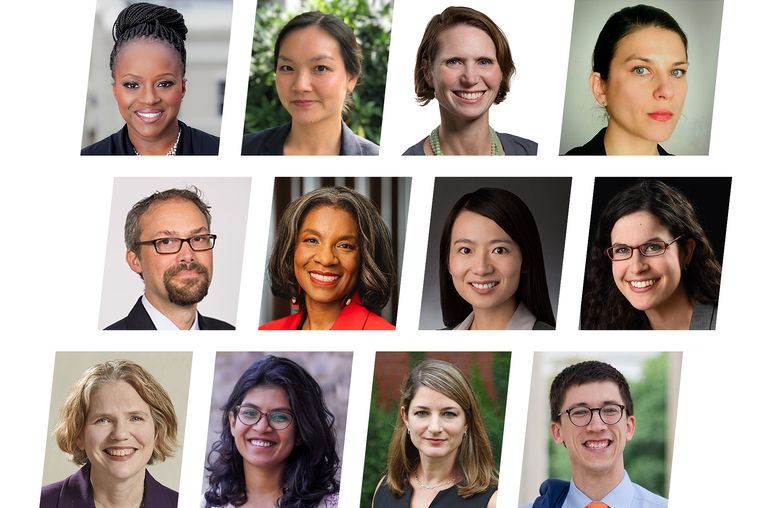
BU Law Welcomes 12 New Full-Time Faculty for 2024–2025
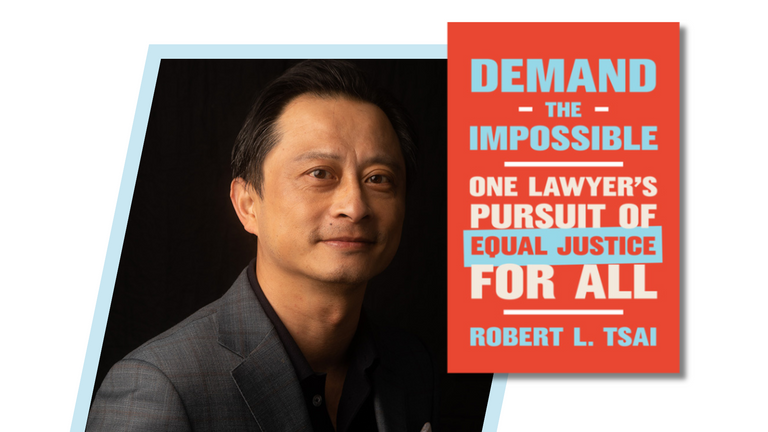
Demand the Impossible

Bar Exam Motivational Music

Class Notes Spring 2024

LLM in Intellectual Property & Information Law
Degree details.
In a world where people can send infinite copies of digital assets around the globe, instantly and at no cost, clients demand competent counsel to protect their substantial interests in intellectual property. Few schools will better prepare you for this challenge than BU Law. US News & World Report consistently ranks us among the nation’s top schools for intellectual property and information law studies. Each year, we invite a select group of lawyers to seize the future through advanced training in this all-important field.
Degree Type
Minimum requirements.
- 2 Semesters
Availability
As a BU Law Intellectual Property & Information Law LLM student, you will pursue a range of IP and IP-related classes . That means you will have access to the law faculty consistently named to the top of Princeton Review’s “Best Professors” list, and focus their studies in the primary areas of IP: copyright law, patent law, and trademark & unfair competition law. Included among our intellectual property instructors are a number of prominent practitioners engaged in cutting-edge work at Boston’s top intellectual property boutiques and biotechnology companies.
Interested in intellectual property & information law, but not sure you want the full LLM? We also have a concentration in IP available in the American Law Program.
LLM in Intellectual Property & Information Law Program Boston University School of Law Graduate and International Programs Office 765 Commonwealth Avenue, Suite 802 Boston, MA 02215 Telephone: 617-353-5324 Email: [email protected]
Request Information
Thank you for your interest in BU Law’s Graduate Programs. We will be in touch soon with more information about your program of interest.
LLM & Master's Degrees
King's College London
Intellectual property & information law llm pathway.
The Intellectual Property & Information Law LLM pathway provides a detailed insight into this fast-growing field. The programme covers the latest practical and theoretical perspectives, you will learn about the access to, and use of, data in a global context with some of the world’s most respected legal experts. Expect interactive classes concerning the regulation of innovation and creativity, in which cutting edge issues are explored in detail.
Key benefits
- Innovations, creative works, collections of data and communications infrastructure are central components of our digital, global society. How the law is and should be applied to the regulation of these intangible assets are important questions for government and commerce around the world.
- The LLM in Intellectual Property & Information Law attracts students from a diverse range of jurisdictions and backgrounds. This is matched by a teaching faculty at King’s that comprises a diverse mix of leading academics and practitioners – offering a wide variety of perspectives on the role of intellectual property and information law today.
- This course will ensure that you have the knowledge and analytical skills to evaluate the ways in which innovations, creative works, data and information technologies are regulated, whether in terms of access, use or exploitation.
- There is a strong international, European and comparative focus to the course and all of our students benefit from access to the wider legal community. Guest speakers, networking events, attendance at external seminars and participation in international mooting competitions are just some of what you can expect on this LLM.
What you will study
Once enrolled on the General LLM at King’s, students can choose modules to follow the Intellectual Property & Information Law pathway and achieve a specialist LLM in Intellectual Property & Information Law . Full-time students who complete the programme in one year will normally take modules totalling 180 credits. To graduate with a Intellectual Property & Information Law LLM at least 120 credits must be taken within the pathway. This can be optional modules alone or a combination of optional modules and a writing project, providing its content is relevant to the pathway. The range of Intellectual Property & Information Law LLM optional modules may typically include:
- Commercialisation of Intellectual Property (15 credits)
- Copyright & The Music Industry in The Digital Era (15 credits)
- Competition Intellectual Property & The Media Industry (15 credits)
- International & Comparative Copyright Law (30 credits)
- Information Privacy and Data Protection (30 credits)
- Patents & Trade Secrets (15 credits)
- Trade Mark Law (15 credits)
In addition, all students are required to take one of the following writing projects, detailed further on the General LLM prospectus page:
- Dissertation (45 credits)
- Dissertation (60 credits)
- 10,000 word practice or research module (45 credits)
Annual Events While at King’s students have the opportunity to take part in events that go beyond their studies, both to enhance their understanding of the field of Intellectual Property & Information Law and to connect with the wider legal community.
One of the foremost events to take place each year is the Oxford International Intellectual Property Moot Competition, which attracts teams from universities worldwide. King’s has a long history of performing well, frequently reaching the finals stages. In 2011, one of our students, Jiri Maly, was awarded the prize for Best Individual Mooter and, in 2015, the King's team reached the quarter finals of the competition.
Students also have the opportunity to participate in extra curricular events at which there are speakers from the legal profession, industry, and academia. Topics in the past have included 3D printing, on-line streaming of music and careers in IP.
Funding opportunity
The BLACA-Stationers' Company postgraduate bursary award consists of one or more bursaries of up to £6,000 payable as a contribution towards the tuition fees of the successful applicant(s) enrolled during the academic year 2023 - 2024: find out more >>>
To follow the Intellectual Property & Information Law pathway, you must first apply for the General LLM at King's. After enrolment you will select your pathway modules.
Pathway Directors

Professor Tanya Aplin
Professor of Intellectual Property Law
Professor Tanya Aplin and Dr Barbara Lauriat lead the Intellectual Property & Information Law pathway. Professor Aplin joined King’s in 2002 and her research interests include copyright law, patent law, law of confidential information and privacy law. Dr Lauriat joined King’s in 2011, teaching and conducting research on intellectual property law subjects.
For further questions, please enquire via King's Contact Centre.

Open days and events
Chat with current students and King's staff to find out about the courses we offer, life at King's and ask any questions you may have.

Professors of Practice appointed in Modern Slavery and Intellectual Property Law
The School has appointed two Professors of Practice who will teach King's LLM students. Parosha Chandran is appointed as...
Other Master of Laws LLM Pathways

Accommodation
Discover your accommodation options and explore our residences.

Connect with a King’s Advisor
Want to know more about studying at King's? We're here to help.

Learning in London
King's is right in the heart of the capital.
Enter a Search Term
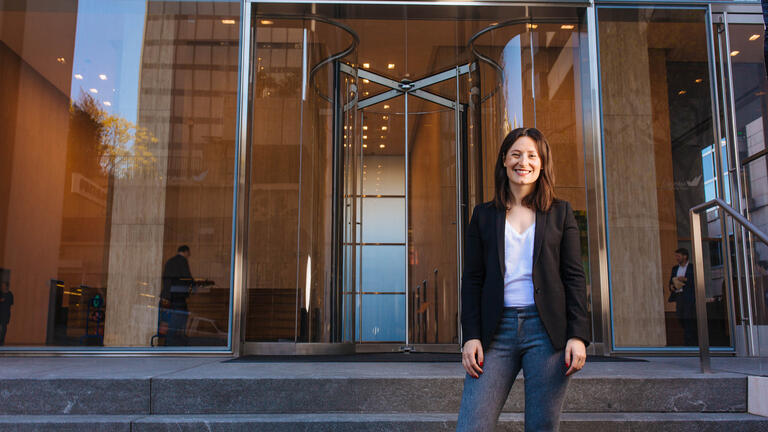
Intellectual Property & Technology Law, LLM
The LLM in Intellectual Property and Technology Law program offers students the opportunity to learn substantive law and gain hands-on experience in the tech capital of the world. The program not only gives students a strong foundation in the subject area, but also allows students to learn from practitioners in the field who serve as part of our extensive group of adjuncts.
- Program Overview
Deadlines and application instructions for Intellectual Property & Technology Law, LLM.
Our Program
Students in the IP and Technology Law LLM program come from diverse backgrounds, including law and science, and many have years of experience in the science and technology fields. The program is open to those with first degrees in law or who have a similar degree or are qualified to practice law in a foreign country. Patent and trademark practitioners are especially encouraged to participate in the program. Students are fully integrated with the JD program, ensuring exposure to diverse points of view and the opportunity to expand their network beyond the LLM program.
In addition to the LLM specific courses, the degree requires a certain number of units of credit in Intellectual Property and Technology Law. Students enrolled in the LLM in Intellectual Property and Technology Law can choose to also prepare for a U.S. Bar Exam.
Skills training, including hands-on training through externships in Bay Area law firms and businesses and USF’s many in-house law clinics, and career development are key features of the program. Through the Internet & Intellectual Property Justice Clinic , Students become temporary registered agents under the U.S. Patent and Trademark Office (USPTO) Certification Program, allowing them to practice both trademark law and patent law (under faculty supervision).
Much of what I’ve achieved in my career is thanks to USF's excellent professors who gave me a sound foundation in intellectual property law, which is key to my role as the head of Chile’s patent and trademark office.”
Maximiliano Santa-Cruz LLM ’02 Director General of Chile’s National Institute of Industrial Property
New Day, New Challenges in IP Law
For Sophia Mangold LLM ’17, working in data privacy and intellectual property law is a chance to help her company navigate the dynamic legal changes happening in the field, both in the United States and abroad.

LLM Programs in International Transaction and Comparative Law & Intellectual Property and Technology Law
- Main Campus
- Search UNH.edu
- Search Franklin Pierce School of Law
Commonly Searched Items:
- Academic Calendar
- Tuition and Fees
- Degrees & Certificates
- Academic Specialties
- Academic Success
- Daniel Webster Scholar Honors Program
- Legal Residencies
- Visiting Scholar Program
- Intellectual Property Summer Institute
- J.D. Admissions
- Graduate Admissions
- Financial Aid
- LL.M. Programs
- Visit Campus
- Franklin Pierce Center for Intellectual Property
- Sports & Entertainment Law Institute
- The Warren B. Rudman Center for Justice, Leadership & Public Service
- Current Students
- Alumni Services
- Reciprocity Policy
- Adjunct Faculty
- Affiliate Faculty
- Faculty/Staff Activity Newsletter
- Departments
- Office of the Assistant Dean for Students
- Student Organizations
- Parking & Transportation
- Student Health & Wellness
- Living in Concord
- Information for New Students
- Information Technology
- Campus Climate, Safety and Security
- Development
- Gift Planning
- Giving Stock
- Why UNH Franklin Pierce?
- Office of the Dean
- Consumer Information (ABA Required Disclosures)
- Accreditation
- Business Office
- Communications and Marketing
- Gifts & Apparel
- Diversity & Inclusion
- UNH Healthcare Vitals
Intellectual Property (LL.M.)

With a world-renowned Intellectual Property Law Program, t he University of New Hampshire Franklin Pierce School of Law has one of the most respected and comprehensive patent law and practice programs in the country.
|
|
Why get an LL.M. degree in intellectual property law?
If you want to be an IP leader, shaping policies and practices globally at Fortune 500 companies, Am Law 100 firms and governments, earn an LL.M. in intellectual property law from the IP powerhouse. Designed for U.S. and foreign lawyers, students learn from industry and scholarly experts at the forefront of the field. Experience hands-on learning through clinics like the Intellectual Property and Transaction Clinic and the International Technology Transfer Institute.
Why choose UNH Franklin Pierce Law School for your degree?
UNH Franklin Pierce has been a leader in intellectual property legal education for 50 years. Founded by inventors and entrepreneurs, the University of New Hampshire Franklin Pierce School of Law is a pioneering powerhouse, committed to training the next generation of great lawyers through an emphasis on practice-based learning. UNH Franklin Pierce offers unique opportunities to practice skills, work side-by-side with faculty, and network with global leaders. Our active and close-knit community ensures that you will build relationships that last throughout your career. Upon graduation, you will join the ranks of our 6,000+ alumni in more than 80 countries working in places like Arent Fox, Bayer, General Electric, Hewlett-Packard, Microsoft, Nintendo, PepsiCo., the USPTO, Venable LLP, and WIPO.
We know some of the best learning happens outside of the classroom. LLM students have the opportunity to participate in off-site, immersive classroom experiences to learn from experts in the field and may also have the opportunity to gain invaluable hands-on experience in on-campus clinics like the International Technology Transfer Institute and the Intellectual Property and Transaction Clinic. All this while studying at the largest academic IP library in the Western Hemisphere!
Contact Information
ASIPI Scholarship Opportunities

UNH Franklin Pierce is proud to enter into an exclusive agreement with the Inter-American Association of Intellectual Property (ASIPI) that will launch intellectual property leaders across Latin America through an educational partnership and scholarships for ASIPI members. Our Intellectual Property LL.M. and M.I.P. programs will be offering a combined 2 full tuition scholarships every year from 2023-2028.
Curriculum & Requirements
Program description.
The LLM program allows student to take advantage of one of the most comprehensive IP curricula in the country and immerse themselves in a broad range of cutting-edge IP issues. You will enjoy a rich array of IP resources and programs and choose from classes in patent law, copyright, trademarks and more.
Our LLM in Intellectual Property is available through in-person and online formats. The in-person program is offered in a full-time, residential format with classes beginning in August and concluding in May. With careful planning, students who complete the in-person LLM in Intellectual Property at UNH Franklin Pierce may be eligible to sit for a US bar exam. The in-person LLM program in Intellectual Property is not designed as preparation programs for a US bar exam. However, the programs offer a flexible curriculum that allows students to design a course of study that may afford eligibility to sit for a state bar exam.
The online program offers start dates in August and January. Students can complete the program full-time in one calendar year, or part-time in up to three years.
Requirements for the Program
| Code | Title | Credits |
|---|---|---|
| Residential Candidate Requirements | ||
| LIP 801 | Graduate Legal Research and Information Literacy | 1 |
| LIP 894 | American Legal Process and Analysis I | 3 |
| LIP 895 | American Legal Process and Analysis II | 2 |
| Required Elective Courses | ||
| Select three from the following: | 7 | |
| Copyright Law | ||
| Fundamentals of Intellectual Property | ||
| Copyright Licensing | ||
| Technology Licensing | ||
| Patent Law | ||
| Patent Practice and Procedure I | ||
| Trademarks and Deceptive Practices | ||
| Additional Electives Selected from a List Provided by Program Director | 11 | |
| Total Credits | 24 | |
| Code | Title | Credits |
|---|---|---|
| Online Candidate Requirements - Patent Track | ||
| LCR 923 | International Legal Research | 2 |
| LIP 944 | Fundamentals of Intellectual Property | 3 |
| LIP 913 | International and Comparative Intellectual Property | 3 |
| LIP 954 | Patent Law | 3 |
| LIP 961 | Patent Practice and Procedure I | 3 |
| LIP 962 | Patent Practice and Procedure II | 3 |
| Elective Courses | ||
| Select from the following: | 7 | |
| Copyright Law | ||
| Intellectual Property Management | ||
| Mining Patent Information in the Digital Age | ||
| Trademarks and Deceptive Practices | ||
| Trade Secrets Law | ||
| Additional Electives Selected from a List Provided by Program Director | ||
| Total Credits | 24 | |
| Code | Title | Credits |
|---|---|---|
| Online Candidate Requirements - Copyright/Trademark Track: | ||
| LCR 923 | International Legal Research | 2 |
| LIP 944 | Fundamentals of Intellectual Property | 3 |
| LIP 913 | International and Comparative Intellectual Property | 3 |
| LIP 912 | Copyright Law | 3 |
| LIP 977 | Trademarks and Deceptive Practices | 3 |
| Additional Course Designed by Director Copyright/Trademark Law and practice | 2-3 | |
| Elective Courses | ||
| Select from the following: | 8 | |
| Intellectual Property Management | ||
| Mining Patent Information in the Digital Age | ||
| Patent Law | ||
| Patent Practice and Procedure I | ||
| Patent Practice and Procedure II | ||
| Trade Secrets Law | ||
| Additional Electives Selected from a List Provided by Program Director | ||
| Total Credits | 24-25 | |
Student Learning Outcomes
UNH Franklin Pierce graduates from the IP LLM program will demonstrate competency at the level of an experienced attorney in these four areas:
- Knowledge and understanding of substantive and procedural law in traditional areas of intellectual property law and practice in the United States and internationally, focused on patents, copyrights, and trademarks.
- Legal analysis and reasoning, legal research, problem-solving, and written and oral communication in the context of traditional intellectual property law and practice in the United States and globally.
- Exercise of proper professional and ethical responsibilities to clients and the national and global legal systems of intellectual property rights; and
- Other professional skills needed for competent and ethical participation as a member of the legal profession focused on intellectual property practice domestically and internationally.

Finding his Niche
Meet Mohak Rana As a boy growing up in the ancient city of Haridwar in North India’s Uttarakhand state, Mohak Rana recalls learning about the significance of intellectual property from his father, Rajkumar, who owns a publications and media house. “Content is something I have been around,” says Rana, 25. “I used...
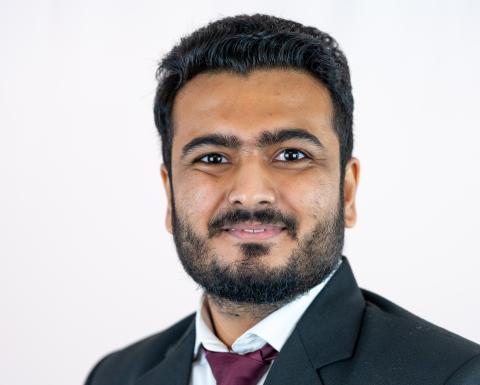
International Student Scholarship Sponsored by Royzz & Co.
Meet Hitarth Parikh, the 2022 recipient of the scholarship

The University of New Hampshire Franklin Pierce School of Law has earned an international reputation as a leader in Intellectual Property Law. The school attracts talented students from all over the world through both the quality of its coursework and the community support it provides. Moreover, the school’s resources and network enabled international students thrive even in the COVID-19 era of employment.
Read the stories of three of our recent graduates
ASIPI Webinar: LLM Experiences at UNH Franklin Pierce
UNH Franklin Pierce's LLM experiences and current issues discussed in the classroom.
Related News

Take the Next Step

HOW TO APPLY

VISIT CAMPUS
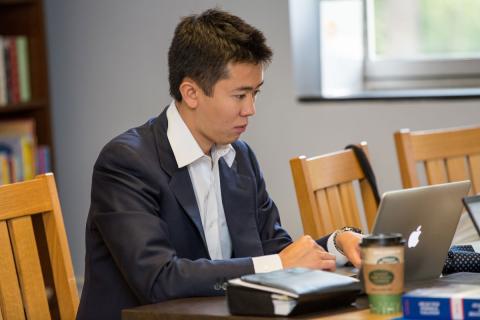
REQUEST INFORMATION
Franklin pierce school of law.
- Hybrid Juris Doctor
- Advanced Standing Program
- LL.M. Degrees
- Master's Degrees
- Entertainment Law
- Franklin Pierce Intellectual Property Law
- Sports & Entertainment Law
- Dual Degrees
- Joint Degrees
- Criminal Practice Clinic
- Intellectual Property and Transaction Clinic
- International Technology Transfer Institute
- Case Law Citing IDEA
- Student Competition
- University of New Hampshire Law Review
- UNH Sports Law Review
- Campus Room Rentals
- How to Apply
- Tours and Information Sessions
- Information for Admitted J.D. Students
- Request Information
- Admissions FAQs
- Information for Admitted Students
- Residential Versus Online
- International Student Scholarship, sponsored by Royzz & Co.
- Day in the Life
- International Funding Resources
- Fellowships and Scholarships
- Events and Programming
- Major Sponsors
- Student Accessibility Services
- The CARES Act and Charitable Giving
- Dean's Advisory Council
- Certification of Competence for Applicants for Admission to the New York Bar
- Consumer Information - Transfer of Credit
- Social Media
- Council on Legal Education Opportunity (CLIC-CLEO)
- Dean's Statement on Diversity, Equity, and Inclusion
- Hispanic Association of Colleges and Universities
- SBA Statement on Diversity, Equity, and Inclusion

- Sustainability
- Embrace New Hampshire
- University News
- The Future of UNH
- Campus Locations
- Calendars & Events
- Directories
- Facts & Figures
- Academic Advising
- Colleges & Schools
- Degrees & Programs
- Undeclared Students
- Course Search
- Study Abroad
- Career Services
- Undergraduate Admissions
- Costs & Financial Aid
- Net Price Calculator
- UNH Franklin Pierce School of Law
- Housing & Residential Life
- Clubs & Organizations
- New Student Programs
- Student Support
- Fitness & Recreation
- Student Union
- Health & Wellness
- Student Life Leadership
- Sport Clubs
- UNH Wildcats
- Intramural Sports
- Campus Recreation
- Centers & Institutes
- Undergraduate Research
- Research Office
- Graduate Research
- FindScholars@UNH
- Business Partnerships with UNH
- Professional Development & Continuing Education
- Research and Technology at UNH
- Faculty & Staff
- Alumni & Friends
Global main menu
Intellectual property law llm.
Part of: Law and Business and Management
On the Intellectual Property LLM, you will have the opportunity to explore a range of intellectual property areas, issues, and industries. From life sciences, through to music, film, fashion, interactive entertainment, and the creative industries, as well as significant social and global policy, including agriculture, development, animal welfare, and trade. You will be taught by leading scholars and participate in one of most stimulating intellectual property research and teaching environments in the world.
- Internationally recognised staff who are advisers to international organisations such as the World Intellectual Property Organisation (WIPO), the European Patent Office (EPO), the UK Intellectual Property Office (IPO) and the European Commission
- High rate of student employment within six months of graduation
- Be a part of Queen Mary Intellectual Property Research Institute (QMIPRI) , which runs regular research discussions, seminars and annual events
Watch a recording of our programme webinar with Professor Johanna Gibson on our YouTube channel here.
Study options
- Full-time September 2024 | 1 year
- Part-time September 2024 | 2 years
- Full-time September 2025 | 1 year
What you'll study
Study intellectual property law to a high level on this reputable LLM in Intellectual Property from Queen Mary. You will be taught by internationally recognised and highly experienced experts across a wide range of specialised topics and areas in one of the biggest Intellectual Property LLM programmes in the world.
Intellectual property law has become an interdisciplinary field comprised of law, engineering, medical science, economics, philosophy, anthropology, cognitive science, and numerous other fields. The Intellectual Property LLM explores this exciting area of law through a range of perspectives, including music, fashion, film, agriculture, medicine and health, animals and welfare, technology and artificial intelligence, and more. Throughout the modules, you will have the opportunity to study the full range of intellectual property rights, including trade marks, patents, designs, copyright and related rights and more.
You will be part of a truly international cohort, with fellow students attending from over 80 countries across the world. You will work with academics and professionals with experiences from different jurisdictions, enriching your class discussions and debates.
You will also get the chance to apply for a 12-month paid traineeship at the OHIM or EPO under the Pan-European Seal Professional Traineeship programme . This invaluable opportunity could help you get a foot in the door of the competitive world of IP through valuable on-the-job, multicultural professional work experience.
We also offer the J.A.L. Sterling Postgraduate Bursary Award of up to £6,000 towards tuition fees for the Intellectual Property Law LLM.
We only allow one application from our range of LLM programmes so please ensure you apply for your main programme of interest. Please note you can request to change programme at offer stage via your MYSIS admissions portal and also request this after enrolment via the School of Law Taught Programme office.
Join the Queen Mary Network and speak to our community about this programme.
You will need to complete 180 credits in total.
Full year programme:
- 180 credits of taught modules (this can include a 30 credits elective dissertation)
Please see the academic year plan for an idea of the structure of the full-time programme and key periods of assessment.

Postgraduate Open Event
Join us online for our next Postgraduate Open Event on Thursday 24 October 2024 where you can find out more about student life and study at Queen Mary.
View the full list of modules available on this programme .
- You will be assessed by a range of methods combining examinations and coursework which will be fully explained in your student pack available during induction.
- For any elective dissertation, you will undertake self-directed research and writing with the support of an allocated supervisor.
Read our FAQs for more information about applying to us .

My choice of modules ranged from research-led courses in film and video game law to more practical ones, like IP licensing and commercialisation. Even more interesting was the fact that I could develop my knowledge and commercial acumen both in such specific legal areas mentioned and in IP law in general. — Christos Sakellaropoulos, Intellectual Property Law LLM (2022). Read more testimonials from our alumni and students of the Intellectual Property Law LLM .
You will be taught by a mixture of formal lectures and small group seminars. The seminars are designed to generate informed discussion around set topics, and may involve student presentations and group exercises as well as open discussion.
You will have a team of advisers to support you, including the LLM and Programme Academic Directors, your module convenors and, for an elective dissertation, your dissertation supervisor.

Professor Gillian Davies
DL, PhD (Aberystwyth), Barrister at Law of Lincoln’s Inn, London
Professor Gillian Davies is a well-known and highly respected voice in her field. An accomplished author and lecturer, she is regularly in demand as a speaker at conferences on copyright and European patent matters and to act as a judge in moots.

Dr Gaetano Dimita
Diploma di Laurea in Giurisprudenza (Rome), LLM (London), PhD (London), Avvocato (Italian Bar - Rome)
Dr Dimita’s research focus on the interrelationship among creativity, interactivity and new technologies. He is the editor-in-chief of the Interactive Entertainment Law Review, Edward Elgar, and the organiser of the ‘More than Just a Game’ conference series.
Ms Laura Edgar
LLB (Aberd)
Ms Edgar lectures on AI, Robotics and the Law, Media Law, E-commerce Law, Protection of Computer Software and Taxation and Ecommerce. Her research interests include electronic commerce, taxation, jurisdiction, intellectual property and legal issues affecting virtual enterprises.

Dr Gail Elizabeth Evans
BA (Hons), Dip.Ed., LLB, SJD (University of Sydney)
Dr Evans’s research concerns the impact of economic globalisation on the law of international trade and intellectual property. She is engaged in consultancy and capacity building work, most recently as a member of the UN Economic commission for Europe Team of Specialists on Intellectual Property.
Professor Anne Flanagan
BA, JD, LLM
Professor Flanagan practiced law for 16 years in New York and in the US financial services industry. Her experience includes insurance regulatory compliance, appellate litigation and state government relations for providers of life, health and property/casualty insurance and pension products.

Professor Johanna Gibson
BA (Hons I), MA, PGDipAppSci, JD (Queensland), PhD (Edinburgh), Solicitor and Barrister to the Supreme Court of Victoria
Professor Johanna Gibson is a solicitor and barrister to the Supreme Court of Victoria. She has consulted widely to industry, government, NGOs and practitioners, and has been a visiting professor to institutions around the world. She has published extensively in the fields of intellectual property, critical theory, and animal studies.

Professor Jonathan Griffiths
BA (Oxon) MA
Professor Griffiths’ main research interests are in copyright policy and reform. He has been consulted on copyright policy by a number of public bodies including the UK IPO, SABIP, the European Commission, the Dutch Ministry of Justice and the Japanese Cabinet Secretariat.

Professor Duncan Matthews
BSc (Hons), MA (Warwick), LLM (Exeter), PhD (London)
Professor Matthews is Director of the Queen Mary Intellectual Property Research Institute. He has worked as a researcher at a policy think-tank and as an EU lobbyist. He has acted as an advisor to many international organisations, including the European Patent Office.

Professor Noam Shemtov
Professor Noam Shemtov is a qualified solicitor both in the UK and in Israel. He holds visiting appointments by Spanish and Dutch universities, where he lectures regularly in areas pertaining to intellectual property, creative industries and technology.

Professor Uma Suthersanen
LLB (Hons)[S’pore], LLM [Lond], PhD [Lond], Advocate and Solicitor (Singapore Bar), FRSA
Professor Suthersanen has served as a consultant and given evidence to various UN organisations, governments and legislators, including the European Parliament, the European Commission, and the Governments of Israel and Singapore. She has published widely on the subject of intellectual property law.

Professor Guido Westkamp
Dr jur (University Münster), First and Second German State Examination in Law, LLM (London)
Professor Guido Westkamp is a frequent speaker at international conferences and workshops. He is a widely-published author and has a large number of visiting positions including posts at the Universities of Münster (Germany), Alicante (Spain), Hong Kong, TU Dresden (Germany), Wroclaw (Poland) and Skopje (Macedonia).
Where you'll learn
- Free access to online databases and collections including: LexisNexis, Westlaw, Justis, Eur-lex, Hein-Online and many more
- The Postgraduate School of Law Centre in Lincoln's Inn Fields and the Graduate Centre at Mile End
- Queen Mary’s excellent Law Library and European Documentation Centre
- Access to the University of London’s Institute of Advanced Legal Studies (IALS) and the Library at Senate House
Teaching is primarily based at the School of Law's postgraduate centre, the Centre for Commercial Law Studies (CCLS), located in Lincoln's Inn Fields . This area is home to numerous barristers’ chambers and law firms and is a short walk from the Royal Courts of Justice. Our academics and students interact with leading legal professionals, many of whom regularly teach and take part in our seminars and conferences.
Depending on the modules you choose, you may also have classes at the Mile End Campus or at one of the Queen Mary central campus locations ( Charterhouse Square or West Smithfield ).
Administration for this programme is based at Lincoln's Inn fields.
About the School
The school of law.
The School of Law is part of Queen Mary University of London, a member of both the University of London and the Russell Group. The School was ranked 7th in the UK and 32nd in the world by QS World University Rankings by Subject 2023 , and 10th in the UK and 50th in world in the Times Higher Education World University Rankings 2024 by subject .
The School of Law has consistently been ranked in the top 10 law schools in the UK for the quality of our research and teaching, and many of our internationally recognised staff act as advisers to governments, industry and NGOs, both nationally and internationally.
The School's central focus is on the role of law and its institutions in contemporary international society. The School of Law is divided into two organisational units: the Department of Law and the Centre for Commercial Law Studies (CCLS). The School of Law hosts the largest and most diverse LLM programme in the UK.
School of Law
- Tel: +44 (0)20 7882 8223
Career paths
There is a very high rate of employment of our students within six months of graduation. We have specialist career advisers who organise events and assist with finding internship opportunities at UK and international law firms and other employers.
Graduates of this programme have gone on to work as:
- Director General of International Confederation of Authors and Composers Societies.
- IP lawyers in firms such as Quinn Emanuel Urquhart Sullivan LLP, PwC and Windt Le Grand Leeuwenburgh Advocaten.
- in-house counsel for companies such as Diageo and Daimler AG.
After graduating from Queen Mary, you join our network of alumni from over 100 countries , and get access to exclusive benefits and networking opportunities.
Volunteering with qLegal... was a perfect opportunity for me to meet people across my specialism and collaborate to educate the public on legal matters in IP law for business development. The team at qLegal delivered trainings to equip us with the right skills and this has been useful for my professional development. — Azeezat Periola, Intellectual Property Law LLM (2022). Read testimonials from students and alumni on the Intellectual Property Law LLM .
Fees and funding
Full-time study.
September 2024 | 1 year
- Home: £18,850
- Overseas: £29,950 EU/EEA/Swiss students
Conditional deposit
Overseas: £2000 Information about deposits
Part-time study
September 2024 | 2 years
- Home: £9,450
- Overseas: £15,000 EU/EEA/Swiss students
Queen Mary alumni can get a £1000, 10% or 20% discount on their fees depending on the programme of study. Find out more about the Alumni Loyalty Award
There are a number of ways you can fund your postgraduate degree.

School of Law scholarships
The School of Law offers a range of scholarships for Law Masters programmes each year, including the new School of Law Postgraduate Scholarships . Full details are made available on the law funding page from October – November each year.
Other sources of funding
- Scholarships and bursaries
- Postgraduate loans (UK students)
- Country-specific scholarships for international students
Our Advice and Counselling service offers specialist support on financial issues, which you can access as soon as you apply for a place at Queen Mary. Before you apply, you can access our funding guides and advice on managing your money:
- Advice for UK and EU students
- Advice for international students
Entry requirements
Degree requirements.
Law graduates with a 2:2 honours degree who also have other legal qualifications and/or substantial professional legal experience may also qualify.
Other routes
Non-law graduates with a minimum second class honours degree, that have also obtained a Merit (or 60 per cent) in the Common Professional Examination (CPE) or Graduate Diploma in Law (GDL) recognised by the UK professional bodies, may also qualify. Non-law graduates may also be considered on the basis of exceptional professional experience (of at least five years) in a legal area or an area directly related to their programme of study.
Find out more about how to apply for our postgraduate taught courses.
International
Afghanistan We normally consider the following qualifications for entry to our postgraduate taught programmes: Master Degree from a recognised institution. UK 1st class degree: 90%; or GPA 3.7 out of 4.0 UK 2:1 degree: 80%; or GPA 3.0 out of 4.0 UK 2:2 degree: 70%; or GPA 2.4 out of 4.0
Albania We normally consider the following qualifications for entry to our postgraduate taught programmes: Bachelor Degree from a recognised institution. UK 1st class degree: 9.5 out of 10 UK 2:1 degree: 8 out of 10 UK 2:2 degree: 7 out of 10
Algeria We normally consider the following qualifications for entry to our postgraduate taught programmes: Licence; Diplome de [subject area]; Diplome d'Etudes Superieures; Diplome de Docteur end Pharmacie; or Diplome de Docteur en Medecine from a recognised institution. UK 1st class degree: 16 out of 20 UK 2:1 degree: 14 out of 20 UK 2:2 degree: 12 out of 20
Angola We normally consider the following qualifications for entry to our postgraduate taught programmes: Grau de Licenciado/a (minimum 4 years) from selected institutions. UK 1st class degree: 17 out of 20 UK 2:1 degree: 15 out of 20 UK 2:2 degree: 13 out of 20
Argentina We normally consider the following qualifications for entry to our postgraduate taught programmes: Titulo/ Grado de Licenciado/ Titulo de [subject area] (minimum 4 years) from a recognised institution. UK 1st class degree: 9 out of 10 UK 2:1 degree: 7.5 out of 10 UK 2:2 degree: 6.5 out of 10
Armenia We normally consider the following qualifications for entry to our postgraduate taught programmes: Bachelor Degree or Specialist Diploma from a recognised institution. UK 1st class degree: 87 out of 100 UK 2:1 degree: 75 out of 100 UK 2:2 degree: 61 out of 100
Australia We normally consider the following qualifications for entry to our postgraduate taught programmes: Bachelor Degree (minimum 3 years) or Bachelor Honours degree from a recognised institution. UK 1st class degree: High Distinction; or First Class with Honours UK 2:1 degree: Distinction; or Upper Second Class with Honours UK 2:2 degree: Credit; or Lower Second Class with Honours
Austria We normally consider the following qualifications for entry to our postgraduate taught programmes: Bachelor Degree from a recognised institution. UK 1st class degree: 1.5 out of 5.0 UK 2:1 degree: 2.5 out of 5.0 UK 2:2 degree: 3.5 out of 5.0
The above relates to grading scale where 1 is the highest and 5 is the lowest.
Azerbaijan We normally consider the following qualifications for entry to our postgraduate taught programmes: Bachelor Degree or Specialist Diploma from a recognised institution. UK 1st class degree: 90%; or GPA 4.7 out of 5 UK 2:1 degree: 80%; or GPA 4 out of 5 UK 2:2 degree: 70%; or GPA 3.5 out of 5
Bahamas We normally consider the following qualifications for entry to our postgraduate taught programmes: Bachelor Degree (minimum 3 years) from the University of West Indies. UK 1st class degree: First Class Honours UK 2:1 degree: Upper Second Class Honours UK 2:2 degree: Lower Second Class Honours
Bahrain We normally consider the following qualifications for entry to our postgraduate taught programmes: Bachelor Degree from a recognised institution. UK 1st class degree: GPA 3.7 out of 4.0; or 90 out of 100 UK 2:1 degree: GPA 3.0 out of 4.0; or 80 out of 100 UK 2:2 degree: GPA 2.3 out of 4.0; or 74 out of 100
Bangladesh We normally consider the following qualifications for entry to our postgraduate taught programmes: Bachelor Degree (minimum 4 years) from selected institutions. UK 1st class degree: GPA 3.2 to 3.7 out of 4.0 UK 2:1 degree: GPA 3.0 to 3.3 out of 4.0 UK 2:2 degree: GPA 2.3 to 2.7 out of 4.0
Offer conditions will vary depending on the institution you are applying from. For some institutions/degrees we will ask for different grades to above, so this is only a guide.
Barbados We normally consider the following qualifications for entry to our postgraduate taught programmes: Bachelor Degree from the University of West Indies, Cave Hill or Barbados Community College. UK 1st class degree: First Class Honours*; or GPA 3.7 out of 4.0** UK 2:1 degree: Upper Second Class Honours*; or GPA 3.0 out of 4.0** UK 2:2 degree: Lower Second Class Honours*; or GPA 2.4 out of 4.0**
*relates to: the University of West Indies, Cave Hill.
**relates to: Barbados Community College.
Belarus We normally consider the following qualifications for entry to our postgraduate taught programmes: Bachelor Degree or Specialist Diploma (minimum 4 years) from a recognised institution. UK 1st class degree: 9 out of 10; or 4.7 out of 5 UK 2:1 degree: 7 out of 10; or 4 out of 5 UK 2:2 degree: 5 out of 10; or 3.5 out of 5
Belgium We normally consider the following qualifications for entry to our postgraduate taught programmes: Bachelor Degree (180 ECTS credits) from a recognised institution. UK 1st class degree: 80% or 16/20*; or 78%** UK 2:1 degree: 70% or 14/20*; or 72%** UK 2:2 degree: 60% or 12/20*; or 65%**
*Flanders (Dutch-speaking)/ Wallonia (French-speaking) **German-speaking
Belize We normally consider the following qualifications for entry to our postgraduate taught programmes: Bachelor Degree (minimum 3 years) from the University of West Indies. UK 1st class degree: First Class Honours UK 2:1 degree: Upper Second Class Honours UK 2:2 degree: Lower Second Class Honours
Benin We normally consider the following qualifications for entry to our postgraduate taught programmes: Maitrise or Masters from a recognised institution. UK 1st class degree: 16 out of 20 UK 2:1 degree: 14 out of 20 UK 2:2 degree: 12 out of 20
Bolivia We normally consider the following qualifications for entry to our postgraduate taught programmes: Titulo de Bachiller Universitario or Licenciado / Titulo de [subject area] (minimum 4 years) from a recognised institution. UK 1st class degree: 85%* or 80%** UK 2:1 degree: 75%* or 70%** UK 2:2 degree: 65%* or 60%**
*relates to: Titulo de Bachiller Universitario
**relates to: Licenciado / Titulo de [subject area]
Bosnia and Herzegovina We normally consider the following qualifications for entry to our postgraduate taught programmes: Bachelor Degree (minimum 3 years) from a recognised institution. UK 1st class degree: 9.5 out of 10 UK 2:1 degree: 8.5 out of 10 UK 2:2 degree: 7.5 out of 10
Botswana We normally consider the following qualifications for entry to our postgraduate taught programmes: Bachelor Degree (minimum 5 years) or Master Degree from the University of Botswana. UK 1st class degree: 80% UK 2:1 degree: 70% UK 2:2 degree: 60%
Brazil We normally consider the following qualifications for entry to our postgraduate taught programmes: Título de Bacharel / Título de [subject area] or Título de Licenciado/a (minimum 4 years) from a recognised institution. UK 1st class degree: 8.25 out of 10 UK 2:1 degree: 7.5 out of 10 UK 2:2 degree: 6.5 out of 10
The above grades assumes that the grading scale has a pass mark of 5.
Brunei We normally consider the following qualifications for entry to our postgraduate taught programmes: Bachelor Honours degree from a recognised institution. UK 1st class degree: First Class Honours UK 2:1 degree: Upper Second Class Honours UK 2:2 degree: Lower Second Class Honours
Bulgaria We normally consider the following qualifications for entry to our postgraduate taught programmes: Bachelor Degree from a recognised institution. UK 1st class degree: 5.75 out of 6.0 UK 2:1 degree: 4.75 out of 6.0 UK 2:2 degree: 4.0 out of 6.0
Burundi We normally consider the following qualifications for entry to our postgraduate taught programmes: Diplome d'Etudes Approfondies from a recognised institution. UK 1st class degree: 85%; or 16 out of 20 UK 2:1 degree: 75%; or 14 out of 20 UK 2:2 degree: 60%; or 12 out of 20
Cambodia We normally consider the following qualifications for entry to our postgraduate taught programmes: Masters Degree from a recognised institution. UK 1st class degree: 80%; or GPA 3.5 out of 4.0 UK 2:1 degree: 70%; or GPA 3.0 out of 4.0 UK 2:2 degree: 60%; or GPA 2.35 out of 4.0
Cameroon We normally consider the following qualifications for entry to our postgraduate taught programmes: Bachelor Degree; Licence; Diplome d'Etudes Superieures de Commerce; Diplome d'Ingenieur de Conception/ Travaux; Doctorat en Medecine/ Pharmacie; or Maitrise or Master 1 from selected institutions. UK 1st class degree: 16 out of 20; or GPA 3.6 out of 4.0 UK 2:1 degree: 14 out of 20; or GPA 3.0 out of 4.0 UK 2:2 degree: 12 out of 20; or GPA 2.5 out of 4.0
Canada We normally consider the following qualifications for entry to our postgraduate taught programmes: Bachelor Degree or Bachelor Honours Degree from a recognised institution. UK 1st class degree: GPA 3.6 out of 4.0 UK 2:1 degree: GPA 3.2 out of 4.0 UK 2:2 degree: GPA 2.5 out of 4.0
Chile We normally consider the following qualifications for entry to our postgraduate taught programmes: Grado de Licenciado en [subject area] or Titulo (Professional) de [subject area] (minimum 4 years) from a recognised institution. UK 1st class degree: 6.5 out of 7 UK 2:1 degree: 5.5 out of 7 UK 2:2 degree: 5 out of 7
China We normally consider the following qualifications for entry to our postgraduate taught programmes: Bachelor Degree (minimum 4 years) from selected institutions. UK 1st class degree: 85 to 95% UK 2:1 degree: 75 to 85% UK 2:2 degree: 70 to 80%
Offer conditions will vary depending on the institution you are applying from.
Colombia We normally consider the following qualifications for entry to our postgraduate taught programmes: Licenciado en [subject area] or Titulo de [subject area] (minimum 4 years) from a recognised institution. UK 1st class degree: 4.60 out of 5.00 UK 2:1 degree: 4.00 out of 5.00 UK 2:2 degree: 3.50 out of 5.00
Congo, Dem. Rep. of We normally consider the following qualifications for entry to our postgraduate taught programmes: Diplome d'Etudes Approfondies or Diplome d'Etudes Speciales from a recognised institution. UK 1st class degree: 16 out of 20; or 90% UK 2:1 degree: 14 out of 20; or 80% UK 2:2 degree: 12 out of 20; or 70%
Congo, Rep. of We normally consider the following qualifications for entry to our postgraduate taught programmes: Diplome d'Etudes Superieures or Maitrise from a recognised institution. UK 1st class degree: 16 out of 20 UK 2:1 degree: 14 out of 20 UK 2:2 degree: 12 out of 20
Costa Rica We normally consider the following qualifications for entry to our postgraduate taught programmes: Bachiller or Licenciado from a recognised institution. UK 1st class degree: 9 out of 10 UK 2:1 degree: 8 out of 10 UK 2:2 degree: 7.5 out of 10
Croatia We normally consider the following qualifications for entry to our postgraduate taught programmes: Bachelor Degree or Advanced Diploma of Higher Education Level VII/1 (Diploma - Visoko obrazovanje) from a recognised institution. UK 1st class degree: 4.5 out of 5 UK 2:1 degree: 4 out of 5 UK 2:2 degree: 3 out of 5
Cuba We normally consider the following qualifications for entry to our postgraduate taught programmes: Titulo de Licenciado/ Arquitecto/ Doctor/ Ingeniero from a recognised institution. UK 1st class degree: 4.7 out of 5 UK 2:1 degree: 4 out of 5 UK 2:2 degree: 3.5 out of 5
Cyprus We normally consider the following qualifications for entry to our postgraduate taught programmes: Bachelor Degree from a recognised institution. UK 1st class degree: 8 out of 10; or GPA 3.7 out of 4.0 UK 2:1 degree: 7.0 out of 10; or GPA 3.0 out of 4.0 UK 2:2 degree: 6.0 out of 10; or GPA 2.5 out of 4.0
Czech Republic We normally consider the following qualifications for entry to our postgraduate taught programmes: Bachelor Degree (180 ECTS credits) from a recognised institution. UK 1st class degree: 1.2 out of 4 UK 2:1 degree: 1.5 out of 4 UK 2:2 degree: 2.5 out of 4
The above relates to grading scale where 1 is the highest and 4 is the lowest.
Denmark We normally consider the following qualifications for entry to our postgraduate taught programmes: Bachelor degree from a recognised institution. UK 1st class degree: 12 out of 12 (2007 onwards); or 11 out of 13 (before 2007) UK 2:1 degree: 7 out of 12 (2007 onwards); or 8 out of 13 (before 2007) UK 2:2 degree: 4 out of 12 (2007 onwards); or 7 out of 13 (before 2007)
Dominican Republic We normally consider the following qualifications for entry to our postgraduate taught programmes: Licenciado/ Titulo de [subject area] (minimum 4 years) from a recognised institution. UK 1st class degree: 95/100 UK 2:1 degree: 85/100 UK 2:2 degree: 78/100
Ecuador We normally consider the following qualifications for entry to our postgraduate taught programmes: Titulo de Licenciado / Titulo de [subject area] (minimum 4 years) from a recognised institution. UK 1st class degree: 90%; or 9/10; or 19/20; or GPA 3.7 out of 4.0 UK 2:1 degree: 80%; or 8/10; or 18/20; or GPA 3.0 out of 4.0 UK 2:2 degree: 70%; or 7/10; or 14/20; or GPA 2.4 out of 4.0
Egypt We normally consider the following qualifications for entry to our postgraduate taught programmes: Bachelor Degree from selected institutions. UK 1st class degree: 85%; or GPA 3.7 out of 4 UK 2:1 degree: 75%; or GPA 3.0 out of 4 UK 2:2 degree: 65%; or GPA 2.5 out of 4
El Salvador We normally consider the following qualifications for entry to our postgraduate taught programmes: Licenciado/ Titulo de [subject area] (minimum 5 years) from a recognised institution. UK 1st class degree: 8.5 out of 10 UK 2:1 degree: 7.5 out of 10 UK 2:2 degree: 6.5 out of 10
Eritrea We normally consider the following qualifications for entry to our postgraduate taught programmes: Masters Degree from a recognised institution. UK 1st class degree: GPA 3.7 out of 4.0 UK 2:1 degree: GPA 3.0 out of 4.0 UK 2:2 degree: GPA 2.4 out of 4.0
Estonia We normally consider the following qualifications for entry to our postgraduate taught programmes: Bachelor Degree; University Specialist's Diploma; or Professional Higher Education Diploma from a recognised institution. UK 1st class degree: 4.5 out of 5 UK 2:1 degree: 3.5 out of 5 UK 2:2 degree: 2 out of 5
The above grades assumes that 1 is the pass mark.
Eswatini We normally consider the following qualifications for entry to our postgraduate taught programmes: Masters Degree from a recognised institution. UK 1st class degree: 80% UK 2:1 degree: 70% UK 2:2 degree: 60%
Ethiopia We normally consider the following qualifications for entry to our postgraduate taught programmes: Masters Degree from a recognised institution. UK 1st class degree: GPA 3.7 out of 4.0 UK 2:1 degree: GPA 3.0 out of 4.0 UK 2:2 degree: GPA 2.5 out of 4.0
Fiji We normally consider the following qualifications for entry to our postgraduate taught programmes: Bachelor Degree (minimum 3 years) from one of the following institutions: Fiji National University, the University of Fiji, or the University of South Pacific, Fiji. UK 1st class degree: GPA 4.0 out of 5.0*; or overall grade A with High Distinction pass**; or GPA 4.0 out of 4.5*** UK 2:1 degree: GPA 3.33 out of 5.0*; or overall grade B with Credit pass**; or GPA 3.5 out of 4.5*** UK 2:2 degree: GPA 2.33 out of 5.0*; or overall grade S (Satisfactory)**; or GPA 2.5 out of 4.5***
*relates to Fiji National University
**relate to the University of Fiji
***relates to the University of South Pacific, Fiji
Finland We normally consider the following qualifications for entry to our postgraduate taught programmes: Bachelor Degree/ Kandidaatti/ Kandidat (minimum 180 ECTS credits) from a recognised institution; or Bachelor degree (Ammattikorkeakoulututkinto/ Yrkeshögskoleexamen) from a recognised University of Applied Sciences. UK 1st class degree: 4.5 out of 5; or 2.8 out of 3 UK 2:1 degree: 3.5 out of 5; or 2 out of 3 UK 2:2 degree: 2.5 out of 5; or 1.4 out of 3
France We normally consider the following qualifications for entry to our postgraduate taught programmes: Licence; Grade de Licence; Diplome d'Ingenieur; or Maitrise from a recognised institution. UK 1st class degree: 14 out of 20 UK 2:1 degree: 12 out of 20 UK 2:2 degree: 11 out of 20
Gambia We normally consider the following qualifications for entry to our postgraduate taught programmes: Masters Degree from a recognised institution. UK 1st class degree: 80%; or GPA 4.0 out of 4.3 UK 2:1 degree: 67%; or GPA 3.3 out of 4.3 UK 2:2 degree: 60%; or GPA 2.7 out of 4.3
Georgia We normally consider the following qualifications for entry to our postgraduate taught programmes: Bachelor Degree or Specialist Diploma (minimum 4 years) from a recognised institution. UK 1st class degree: 91 out of 100; or 4.7 out of 5 UK 2:1 degree: 81 out of 100; or 4 out of 5 UK 2:2 degree: 71 out of 100; or 3.5 out of 5
Germany We normally consider the following qualifications for entry to our postgraduate taught programmes: Bachelor Degree (180 ECTS credits) from a recognised institution. UK 1st class degree: 1.5 out of 5.0 UK 2:1 degree: 2.5 out of 5.0 UK 2:2 degree: 3.5 out of 5.0
Ghana We normally consider the following qualifications for entry to our postgraduate taught programmes: Bachelor Degree from a recognised institution. UK 1st class degree: First Class UK 2:1 degree: Second Class (Upper Division) UK 2:2 degree: Second Class (Lower Division)
Greece We normally consider the following qualifications for entry to our postgraduate taught programmes: Degrees from recognised selected institutions in the University sector or Degrees (awarded after 2003) from recognised Technological Educational Institutes. UK 1st class degree: 8 out of 10*; or 9 out of 10** UK 2:1 degree: 7 out of 10*; or 7.5 out of 10** UK 2:2 degree: 6 out of 10*; or 6.8 out of 10**
*Relates to degrees from the University Sector. **Relates to degrees from Technological Educational Institutes.
Grenada We normally consider the following qualifications for entry to our postgraduate taught programmes: Bachelor Degree (minimum 3 years) from the University of West Indies. UK 1st class degree: First Class Honours UK 2:1 degree: Upper Second Class Honours UK 2:2 degree: Lower Second Class Honours
Guatemala We normally consider the following qualifications for entry to our postgraduate taught programmes: Licenciado / Titulo de [subject area] (minimum 4 years) from a recognised institution. UK 1st class degree: 90% UK 2:1 degree: 80% UK 2:2 degree: 70%
The above grades assumes that the pass mark is 61% or less.
Guinea We normally consider the following qualifications for entry to our postgraduate taught programmes: Master; Maitrise; Diplome d'Etudes Superieures; or Diplome d'Etudes Approfondies from a recognised institution. UK 1st class degree: 16 out of 20 UK 2:1 degree: 14 out of 20 UK 2:2 degree: 12 out of 20
Guyana We normally consider the following qualifications for entry to our postgraduate taught programmes: Graduate Diploma (Postgraduate) or Masters degree from a recognised institution. UK 1st class degree: GPA 3.7 out of 4.0 UK 2:1 degree: GPA 3.0 out of 4.0 UK 2:2 degree: GPA 2.4 out of 4.0
Honduras We normally consider the following qualifications for entry to our postgraduate taught programmes: Titulo de Licenciado/a / Grado Academico de Licenciatura (minimum 4 years) from a recognised institution. UK 1st class degree: 90%; or 4.7 out of 5; or GPA 3.7 out of 4.0 UK 2:1 degree: 80%; or 4.0 out of 5; or GPA 3.0 out of 4.0 UK 2:2 degree: 70%; or 3.5 out of 5; or GPA 2.4 out of 4.0
Hong Kong We normally consider the following qualifications for entry to our postgraduate taught programmes: Bachelor Honours Degree from selected institutions. UK 1st class degree: First Class Honours UK 2:1 degree: Upper Second Class Honours UK 2:2 degree: Lower Second Class Honours
Hungary We normally consider the following qualifications for entry to our postgraduate taught programmes: Bachelor degree (Alapfokozat) or University Diploma (Egyetemi Oklevel) from a recognised institution. UK 1st class degree: 4.75 out of 5 UK 2:1 degree: 4 out of 5 UK 2:2 degree: 3.5 out of 5
Iceland We normally consider the following qualifications for entry to our postgraduate taught programmes: Bachelor degree (Baccalaureus or Bakkalarprof) from a recognised institution. UK 1st class degree: 8.25 out of 10 UK 2:1 degree: 7.25 out of 10 UK 2:2 degree: 6.5 out of 10
India We normally consider the following qualifications for entry to our postgraduate taught programmes: Bachelor Degree (minimum 3 years) from selected institutions. UK 1st class degree: 75% to 80% UK 2:1 degree: 60% to 70% UK 2:2 degree: 50% to 60%
Offer conditions will vary depending on the institution you are applying from. For some institutions/degrees we will ask for different grades to above, so this is only a guide.
For India, offers may be made on the GPA scale.
We do not consider the Bachelor of Vocation (B. Voc.) for Masters entry.
Indonesia We normally consider the following qualifications for entry to our postgraduate taught programmes: Sarjna I (S1) Bachelor Degree or Diploma IV (D4) (minimum 4 years) from selected degree programmes and institutions. UK 1st class degree: GPA 3.6 to 3.8 out of 4.0 UK 2:1 degree: GPA 3.0 to 3.2 out of 4.0 UK 2:2 degree: GPA 2.67 to 2.8 out of 4.0
Offer conditions will vary depending on the institution you are applying from and the degree that you study.
Iran We normally consider the following qualifications for entry to our postgraduate taught programmes: Bachelor Degree from a recognised institution. UK 1st class degree: 17.5 to 18.5 out of 20 UK 2:1 degree: 15 to 16 out of 20 UK 2:2 degree: 13.5 to 14 out of 20
Iraq We normally consider the following qualifications for entry to our postgraduate taught programmes: Bachelor Degree (minimum 4 years) from a recognised institution. UK 1st class degree: 85 out of 100 UK 2:1 degree: 75 out of 100 UK 2:2 degree: 60 out of 100
Ireland We normally consider the following qualifications for entry to our postgraduate taught programmes: Honours Bachelor Degree from a recognised institution. UK 1st class degree: First Class Honours UK 2:1 degree: Second Class Honours Grade I UK 2:2 degree: Second Class Honours Grade II
Israel We normally consider the following qualifications for entry to our postgraduate taught programmes: Bachelor Degree from a recognised institution. UK 1st class degree: 90% UK 2:1 degree: 80% UK 2:2 degree: 65%
Italy We normally consider the following qualifications for entry to our postgraduate taught programmes: Laurea (180 ECTS credits) from a recognised institution. UK 1st class degree: 110 out of 110 UK 2:1 degree: 105 out of 110 UK 2:2 degree: 94 out of 110
Cote D’ivoire (Ivory Coast) We normally consider the following qualifications for entry to our postgraduate taught programmes: Diplome d'Ingenieur; Doctorat en Medicine; Maitrise; Master; Diplome d'Etudes Approfondies; or Diplome d'Etudes Superieures Specialisees from selected institutions. UK 1st class degree: 16 out of 20 UK 2:1 degree: 14 out of 20 UK 2:2 degree: 12 out of 20
Jamaica We normally consider the following qualifications for entry to our postgraduate taught programmes: Bachelor Degree (minimum 3 years) from the University of West Indies (UWI) or a recognised institution. UK 1st class degree: GPA 3.7 out of 4.0; or First Class Honours from the UWI UK 2:1 degree: GPA 3.0 out of 4.0; or Upper Second Class Honours from the UWI UK 2:2 degree: GPA 2.4 out of 4.0; or Lower Second Class Honours from the UWI
Japan We normally consider the following qualifications for entry to our postgraduate taught programmes: Bachelor Degree from selected institutions. UK 1st class degree: S overall* or A overall**; or 90%; or GPA 3.70 out of 4.00 UK 2:1 degree: A overall* or B overall**; or 80%; or GPA 3.00 out of 4.00 UK 2:2 degree: B overall* or C overall**; or 70%; or GPA 2.3 out of 4.00
*Overall mark is from the grading scale: S, A, B, C (S is highest mark) **Overall mark is from the grading scale: A, B, C, D (A is highest mark)
Jordan We normally consider the following qualifications for entry to our postgraduate taught programmes: Bachelor Degree from a recognised institution. UK 1st class degree: 85%; or GPA of 3.7 out of 4.0 UK 2:1 degree: 75%; or GPA of 3.0 out of 4.0 UK 2:2 degree: 70%; or GPA of 2.5 out of 4.0
Kazakhstan We normally consider the following qualifications for entry to our postgraduate taught programmes: Bachelor Degree or Specialist Diploma from a recognised institution. UK 1st class degree: 3.8 out of 4.0/4.33; or 4.7 out of 5 UK 2:1 degree: 3.33 out of 4.0/4.33; or 4.0 out of 5 UK 2:2 degree: 2.67 out of 4.0/4.33; or 3.5 out of 5
Kenya We normally consider the following qualifications for entry to our postgraduate taught programmes: Bachelor Degree (minimum 4 years) from a recognised institution. UK 1st class degree: First Class Honours; or GPA 3.6 out of 4.0 UK 2:1 degree: Second Class Honours Upper Division; or GPA 3.0 out of 4.0 UK 2:2 degree: Second Class Honours Lower Division; or GPA 2.4 out of 4.0
Kosovo We normally consider the following qualifications for entry to our postgraduate taught programmes: Bachelor Degree from a recognised institution. UK 1st class degree: 9.5 out of 10 UK 2:1 degree: 8.5 out of 10 UK 2:2 degree: 7.5 out of 10
Kuwait We normally consider the following qualifications for entry to our postgraduate taught programmes: Bachelor Degree from a recognised institution. UK 1st class degree: GPA 3.67 out of 4.0 UK 2:1 degree: GPA 3.0 out of 4.0 UK 2:2 degree: GPA 2.67 out of 4.0
Kyrgyzstan We normally consider the following qualifications for entry to our postgraduate taught programmes: Bachelor Degree or Specialist Diploma (minimum 4 years) from a recognised institution. UK 1st class degree: 4.7 out of 5; or GPA 3.7 out of 4 UK 2:1 degree: 4.0 out of 5; or GPA 3.0 out of 4 UK 2:2 degree: 3.5 out of 5; or GPA 2.4 out of 4
Laos We normally consider the following qualifications for entry to our postgraduate taught programmes: Masters Degree from a recognised institution. UK 1st class degree: GPA 3.7 out of 4.0 UK 2:1 degree: GPA 3.0 out of 4.0 UK 2:2 degree: GPA 2.4 out of 4.0
Latvia We normally consider the following qualifications for entry to our postgraduate taught programmes: Bachelor Degree (awarded after 2002) from a recognised institution. UK 1st class degree: 9.5 out of 10 UK 2:1 degree: 7.5 out of 10 UK 2:2 degree: 6 out of 10
Lebanon We normally consider the following qualifications for entry to our postgraduate taught programmes: Bachelor Degree; Licence; or Maitrise from a recognised institution. UK 1st class degree: 90% or Grade A; or GPA 3.7 out of 4.0; or 16 out of 20 (French system) UK 2:1 degree: 80% or Grade B; or GPA 3.0 out of 4.0; or 13 out of 20 (French system) UK 2:2 degree: 70% or Grade C; or GPA 2.5 out of 4.0; or 12 out of 20 (French system)
Lesotho We normally consider the following qualifications for entry to our postgraduate taught programmes: Bachelor Honours Degree (minimum 5 years total HE study); Masters Degree or Postgraduate Diploma from selected institutions. UK 1st class degree: 80% UK 2:1 degree: 70% UK 2:2 degree: 60%
Liberia We normally consider the following qualifications for entry to our postgraduate taught programmes: Masters Degree from a recognised institution. UK 1st class degree: 90% or GPA 3.7 out of 4.0 UK 2:1 degree: 80% or GPA 3.0 out of 4.0 UK 2:2 degree: 70% or GPA 2.4 out of 4.0
Libya We normally consider the following qualifications for entry to our postgraduate taught programmes: Bachelor Degree from selected institutions. UK 1st class degree: 85%; or 3.7 out of 4.0 GPA UK 2:1 degree: 75%; or 3.0 out of 4.0 GPA UK 2:2 degree: 65%; or 2.6 out of 4.0 GPA
Liechtenstein We normally consider the following qualifications for entry to our postgraduate taught programmes: Bachelor Degree (180 ECTS credits) from a recognised institution. UK 1st class degree: 5.6 out of 6.0 UK 2:1 degree: 5.0 out of 6.0 UK 2:2 degree: 4.4 out of 6.0
Lithuania We normally consider the following qualifications for entry to our postgraduate taught programmes: Bachelor Degree (minimum 180 ECTS credits) from a recognised institution. UK 1st class degree: 9.5 out of 10 UK 2:1 degree: 8 out of 10 UK 2:2 degree: 7 out of 10
Luxembourg We normally consider the following qualifications for entry to our postgraduate taught programmes: Bachelor Degree from a recognised institution. UK 1st class degree: 16 out of 20 UK 2:1 degree: 14 out of 20 UK 2:2 degree: 12 out of 20
Macau We normally consider the following qualifications for entry to our postgraduate taught programmes: Bachelor Degree (Licenciatura) (minimum 4 years) from a recognised institution. UK 1st class degree: GPA 3.7 out of 4.0 UK 2:1 degree: GPA 3.0 out of 4.0 UK 2:2 degree: GPA 2.5 out of 4.0
Macedonia We normally consider the following qualifications for entry to our postgraduate taught programmes: Diploma of Completed Higher Education - Level VII/1 or Bachelor Degree from a recognised institution. UK 1st class degree: 9.5 out of 10 UK 2:1 degree: 8.5 out of 10 UK 2:2 degree: 7 out of 10
Madagascar We normally consider the following qualifications for entry to our postgraduate taught programmes: Maîtrise; Diplome d'Ingenieur; Diplôme d'Etat de Docteur en Médecine; Diplôme d’Etat de Docteur en Chirurgie Dentaire; Diplôme d'Études Approfondies; Diplôme de Magistère (Première Partie) – also known as Master 1; or Diplôme de Master – also known as Master 2 from a recognised institution. UK 1st class degree: 16 out of 20 UK 2:1 degree: 14 out of 20 UK 2:2 degree: 12 out of 20
Malawi We normally consider the following qualifications for entry to our postgraduate taught programmes: Masters Degree from selected institutions. UK 1st class degree: 80% or GPA 3.7 out of 4.0 UK 2:1 degree: 70% or GPA 3.0 out of 4.0 UK 2:2 degree: 60% or GPA 2.4 out of 4.0
Malaysia We normally consider the following qualifications for entry to our postgraduate taught programmes: Bachelor Degree from a recognised institution. UK 1st class degree: Class 1; or 3.7 out of 4.0 CGPA UK 2:1 degree: Class 2 division 1; or 3.0 out of 4.0 CGPA UK 2:2 degree: Class 2 division 2; or 2.6 out of 4.0 CGPA
Maldives We normally consider the following qualifications for entry to our postgraduate taught programmes: Bachelor Degree (awarded from 2000) from the Maldives National University. UK 1st class degree: GPA 3.7 out of 4.0 UK 2:1 degree: GPA 3.0 out of 4.0 UK 2:2 degree: GPA 2.5 out of 4.0
Malta We normally consider the following qualifications for entry to our postgraduate taught programmes: Bachelor Degree or Bachelor Honours Degree from a recognised institution. UK 1st class degree: First Class Honours; or Category I UK 2:1 degree: Upper Second Class Honours; or Category IIA UK 2:2 degree: Lower Second Class Honours; or Category IIB
Mauritius We normally consider the following qualifications for entry to our postgraduate taught programmes: Bachelor Degree from a recognised institution. UK 1st class degree: Class I; or 70% UK 2:1 degree: Class II division I; or 60% UK 2:2 degree: Class II division II; or 50%
Offer conditions will vary depending on the grading scale used by your institution.
Mexico We normally consider the following qualifications for entry to our postgraduate taught programmes: Titulo de Licenciado/ Titulo (Profesional) de [subject area] from a recognised institution. UK 1st class degree: 9.0 to 9.5 out of 10 UK 2:1 degree: 8.0 to 8.5 out of 10 UK 2:2 degree: 7.0 to 7.5 out of 10
Offer conditions will vary depending on the grading scale your institution uses.
Moldova We normally consider the following qualifications for entry to our postgraduate taught programmes: Bachelor Degree (Diploma de Licenta) from a recognised institution. UK 1st class degree: 9.5 out of 10 UK 2:1 degree: 8 out of 10 UK 2:2 degree: 6.5 out of 10
Monaco We normally consider the following qualifications for entry to our postgraduate taught programmes: Bachelor Degree from a recognised institution. UK 1st class degree: GPA 3.7 out of 4.0 UK 2:1 degree: GPA 3.0 out of 4.0 UK 2:2 degree: GPA 2.5 out of 4.0
Mongolia We normally consider the following qualifications for entry to our postgraduate taught programmes: Bachelor Degree (minimum 4 years) from selected institutions. UK 1st class degree: GPA 3.6 out of 4.0; or 90%; or grade A UK 2:1 degree: GPA 3.2 out of 4.0; or 80%; or grade B UK 2:2 degree: GPA 2.8 out of 4.0; or 70%; or grade C
Montenegro We normally consider the following qualifications for entry to our postgraduate taught programmes: Diploma of Completed Academic Undergraduate Studies; Diploma of Professional Undergraduate Studies; or Advanced Diploma of Higher Education from a recognised institution. UK 1st class degree: 9.5 out of 10 UK 2:1 degree: 8.5 out of 10 UK 2:2 degree: 7 out of 10
Morocco We normally consider the following qualifications for entry to our postgraduate taught programmes: Diplome d'Ecoles Nationales de Commerce et de Gestion; Diplome de Docteur Veterinaire; Doctorat en Medecine; Docteur en Medecine Dentaire; Licence; Diplome d'Inegeniuer d'Etat; Diplome de Doctorat en Pharmacie; or Maitrise from a recognised institution. UK 1st class degree: 16 out of 20 UK 2:1 degree: 13 out of 20 UK 2:2 degree: 11 out of 20
Mozambique We normally consider the following qualifications for entry to our postgraduate taught programmes: Grau de Licenciado (minimum 4 years) or Grau de Mestre from a recognised institution. UK 1st class degree: 16 out of 20 UK 2:1 degree: 14 out of 20 UK 2:2 degree: 12 out of 20
Myanmar We normally consider the following qualifications for entry to our postgraduate taught programmes: Masters Degree from a recognised institution. UK 1st class degree: 80% or GPA of 4.7 out of 5.0 UK 2:1 degree: 70% or GPA of 4.0 out of 5.0 UK 2:2 degree: 60% or GPA of 3.5 out of 5.0
Namibia We normally consider the following qualifications for entry to our postgraduate taught programmes: Bachelor Honours Degree or Professional Bachelor Degree (NQF level 8 qualifications) - these to be awarded after 2008 from a recognised institution. UK 1st class degree: 80% UK 2:1 degree: 70% UK 2:2 degree: 60%
Nepal We normally consider the following qualifications for entry to our postgraduate taught programmes: Bachelor Degree (minimum 4 years) from selected institutions. UK 1st class degree: 80%; or GPA 3.7 out of 4.0 UK 2:1 degree: 65%; or GPA 3.0 out of 4.0 UK 2:2 degree: 55%; or GPA of 2.4 out of 4.0
Bachelor in Nursing Science are not considered equivalent to UK Bachelor degrees.
Netherlands We normally consider the following qualifications for entry to our postgraduate taught programmes: Bachelor Degree from a recognised institution. UK 1st class degree: 8 out of 10 UK 2:1 degree: 7 out of 10 UK 2:2 degree: 6 out of 10
New Zealand We normally consider the following qualifications for entry to our postgraduate taught programmes: Bachelor Degree (minimum 3 years) or Bachelor Honours Degree from a recognised institution. UK 1st class degree: A-*; or First Class Honours** UK 2:1 degree: B*; or Second Class (Division 1) Honours** UK 2:2 degree: C+*; or Second Class (Division 2) Honours**
*from a Bachelor degree **from a Bachelor Honours degree
Nigeria We normally consider the following qualifications for entry to our postgraduate taught programmes: Bachelor Degree from selected institutions. UK 1st class degree: GPA 4.50 out of 5.00; or GPA 6.0 out of 7.0 UK 2:1 degree: GPA 3.50 out of 5.00; or GPA 4.6 out of 7.0 UK 2:2 degree: GPA 2.80 out of 5.00; or GPA 3.0 out of 7.0
Norway We normally consider the following qualifications for entry to our postgraduate taught programmes: Bachelor Degree (180 ECTS credits) from a recognised institution. UK 1st class degree: Overall B grade with at least 75 ECTS (of 180 ECTS min overall) at grade A or above. UK 2:1 degree: Overall B grade UK 2:2 degree: Overall C grade
Oman We normally consider the following qualifications for entry to our postgraduate taught programmes: Bachelor Degree from a recognised institution. UK 1st class degree: GPA 3.7 out of 4.0 UK 2:1 degree: GPA 3.0 out of 4.0 UK 2:2 degree: GPA 2.5 out of 4.0
Pakistan We normally consider the following qualifications for entry to our postgraduate taught programmes: Bachelor Degree (minimum 4 years) from selected institutions. UK 1st class degree: GPA 3.0 to 3.8 out of 4.0 UK 2:1 degree: GPA 2.6 to 3.6 out of 4.0 UK 2:2 degree: GPA 2.0 to 3.0 out of 4.0
Palestine, State of We normally consider the following qualifications for entry to our postgraduate taught programmes: Bachelor Degree from a recognised institution. UK 1st class degree: 90% or GPA 3.7 out of 4.0 UK 2:1 degree: 80% or GPA 3.0 out of 4.0 UK 2:2 degree: 70% or GPA 2.4 out of 4.0
Panama We normally consider the following qualifications for entry to our postgraduate taught programmes: Licenciado / Titulo de [subject area] (minimum 4 years) from a recognised institution. UK 1st class degree: 91% UK 2:1 degree: 81% UK 2:2 degree: 71%
Papua New Guinea We normally consider the following qualifications for entry to our postgraduate taught programmes: Bachelor Honours Degree from a recognised institution. UK 1st class degree: Class I UK 2:1 degree: Class II, division A UK 2:2 degree: Class II, division B
Paraguay We normally consider the following qualifications for entry to our postgraduate taught programmes: Titulo de Licenciado / Titulo de [professional title] (minimum 4 years) from a recognised institution. UK 1st class degree: 4.7 out of 5 UK 2:1 degree: 4 out of 5 UK 2:2 degree: 3.5 out fo 5
Peru We normally consider the following qualifications for entry to our postgraduate taught programmes: Grado Academico de Bachiller or Titulo de Licenciado/ Titulo (Professional) de [subject area] from a recognised institution. UK 1st class degree: 17 out of 20 UK 2:1 degree: 14 out of 20 UK 2:2 degree: 12 out of 20
Philippines We normally consider the following qualifications for entry to our postgraduate taught programmes: Bachelor Degree from selected institutions or Juris Doctor; Bachelor of Laws; Doctor of Medicine; Doctor of Dentistry/ Optometry/ Veterinary Medicine; or Masters Degree from recognised institutions. UK 1st class degree: 3.6 out of 4.0; or 94%; or 1.25 out of 5 UK 2:1 degree: 3.0 out of 4.0; or 86%; or 1.75 out of 5 UK 2:2 degree: 2.5 out of 4.0; or 80%; or 2.5 out of 5
The above 'out of 5' scale assumes 1 is highest mark and 3 is the pass mark.
Poland We normally consider the following qualifications for entry to our postgraduate taught programmes: Licencjat or Inzynier (minimum 3 years) - these must be awarded after 2001 from a recognised institution. UK 1st class degree: 4.8 out of 5.0 UK 2:1 degree: 4.5 out of 5.0 UK 2:2 degree: 3.8 out of 5.0
The above grades are based on the 2 to 5 scale, where 3 is the pass mark and 5 is the highest mark.
Portugal We normally consider the following qualifications for entry to our postgraduate taught programmes: Licenciado (minimum 180 ECTS credits) or Diploma de Estudos Superiores Especializados (DESE) from a recognised institution. UK 1st class degree: 16 out of 20 UK 2:1 degree: 14 out of 20 UK 2:2 degree: 12 out of 20
Puerto Rico We normally consider the following qualifications for entry to our postgraduate taught programmes: Bachelor Degree (minimum 3 years) from a recognised institution. UK 1st class degree: 90/100 or GPA 3.7 out of 4.0 UK 2:1 degree: 80/100 or GPA 3.0 out of 4.0 UK 2:2 degree: 70/100 or GPA 2.4 out of 4.0
Qatar We normally consider the following qualifications for entry to our postgraduate taught programmes: Bachelor Degree from a recognised institution. UK 1st class degree: GPA 3.7 out of 4.0; or GPA 4.4 out of 5.0 UK 2:1 degree: GPA 3.0 out of 4.0; or GPA 3.6 out of 5.0 UK 2:2 degree: GPA 2.4 out of 4.0; or GPA 2.8 out of 5.0
Romania We normally consider the following qualifications for entry to our postgraduate taught programmes: Bachelor Degree (minimum 180 ECTS credits) from a recognised institution. UK 1st class degree: 9.75 out of 10 UK 2:1 degree: 8.0 out of 10 UK 2:2 degree: 7.0 out of 10
Russia We normally consider the following qualifications for entry to our postgraduate taught programmes: Bachelor Degree or Specialist Diploma from a recognised institution. UK 1st class degree: 4.7 out of 5 UK 2:1 degree: 4.0 out of 5 UK 2:2 degree: 3.5 out of 5
Rwanda We normally consider the following qualifications for entry to our postgraduate taught programmes: Bachelor Honours Degree (minimum 4 years) from a recognised institution. UK 1st class degree: 85%; or 17 out of 20 UK 2:1 degree: 70%; or 15 out of 20 UK 2:2 degree: 60%; or 13 out of 20
Saudi Arabia We normally consider the following qualifications for entry to our postgraduate taught programmes: Bachelor Degree from a recognised institution. UK 1st class degree: GPA 4.75 out of 5.0; or GPA 3.75 out of 4.0 UK 2:1 degree: GPA 3.75 out of 5.0; or GPA 3.0 out of 4.0 UK 2:2 degree: GPA 3.0 out of 5.0; or GPA 2.4 out of 4.0
Senegal We normally consider the following qualifications for entry to our postgraduate taught programmes: Maîtrise; Master II; Diplôme d'Études Approfondies (DEA); Diplôme d'Études Supérieures Specialisées (DESS); Diplôme d'État de Docteur en Médecine; Diplôme d'Ingénieur; Diplôme de Docteur en Chirurgie Dentaire; or Diplôme de Pharmacien from a recognised institution. UK 1st class degree: 16/20 UK 2:1 degree: 14/20 UK 2:2 degree: 12/20
Serbia We normally consider the following qualifications for entry to our postgraduate taught programmes: Bachelor Degree or Advanced Diploma of Higher Education from a recognised institution. UK 1st class degree: 9 out of 10 UK 2:1 degree: 8 out of 10 UK 2:2 degree: 7 out of 10
Sierra Leone We normally consider the following qualifications for entry to our postgraduate taught programmes: Bachelor Degree (Honours) or a Masters degree from a recognised institution. UK 1st class degree: First Class honours; or GPA 4.7 out of 5; or GPA 3.75 out of 4 UK 2:1 degree: Upper Second Class honours; or GPA 4 out of 5; or GPA 3.25 out of 4 UK 2:2 degree: Lower Second Class Honours; or GPA 3.4 out of 5; or GPA 2.75 out of 4
Singapore We normally consider the following qualifications for entry to our postgraduate taught programmes: Bachelor Degree (minimum 3 years) or Bachelor Honours degree from selected institutions. UK 1st class degree: GPA 4.3 out of 5.0; or GPA 3.6 out of 4.0 UK 2:1 degree: GPA 3.8 out of 5.0; or GPA 3.0 out of 4.0 UK 2:2 degree: GPA 3.3 out of 5.0; or GPA 2.5 out of 4.0
Slovakia We normally consider the following qualifications for entry to our postgraduate taught programmes: Bachelor Degree (180 ECTS credits) (minimum 3 years) from a recognised institution. UK 1st class degree: 93%; or 1 overall (on 1 to 4 scale, where 1 is highest mark) UK 2:1 degree: 86%; or 1.5 overall (on 1 to 4 scale, where 1 is highest mark) UK 2:2 degree: 72%; or 2.5 overall (on 1 to 4 scale, where 1 is highest mark)
Slovenia We normally consider the following qualifications for entry to our postgraduate taught programmes: Univerzitetni Diplomant (180 ECTS credits) (minimum 3 years) from a recognised institution. UK 1st class degree: 9.5 out of 10 UK 2:1 degree: 8 out of 10 UK 2:2 degree: 7 out of 10
Somalia Bachelor degrees from Somalia are not considered for direct entry to our postgraduate taught programmes. Holders of Bachelor degrees from Somali National University can be considered for our Pre-Masters programmes on a case by case basis.
South Africa We normally consider the following qualifications for entry to our postgraduate taught programmes: NQF Level 8 qualifications such as Bachelor Honours degrees or Professional Bachelor degrees from a recognised institution. UK 1st class degree: 75% UK 2:1 degree: 70% UK 2:2 degree: 60%
South Korea We normally consider the following qualifications for entry to our postgraduate taught programmes: Bachelor Degree (minimum 4 years) from a recognised institution. UK 1st class degree: GPA 4.2 out of 4.5; or GPA 4.0 out of 4.3; or GPA 3.7 out of 4.0 UK 2:1 degree: GPA 3.5 out of 4.5; or GPA 3.3 out of 4.3; or GPA 3.2 out of 4.0 UK 2:2 degree: GPA 3.0 out of 4.5; or GPA 2.8 out of 4.3; or GPA 2.5 out of 4.0
Spain We normally consider the following qualifications for entry to our postgraduate taught programmes: Titulo Universitario Oficial de Graduado en [subject area] (Grado) or Titulo Universitario Oficial de Licenciado en [subject area] (Licenciatura) from a recognised institution. UK 1st class degree: 8.0 out of 10; or 2.5 out of 4.0 UK 2:1 degree: 7.0 out of 10; or 2.0 out of 4.0 UK 2:2 degree: 6.0 out of 10; or 1.5 out of 4.0
Sri Lanka We normally consider the following qualifications for entry to our postgraduate taught programmes: Bachelor Degree (Special or Honours) or Bachelor Degree (Professional) (minimum 4 years) from a recognised institution. UK 1st class degree: GPA 3.5 out of 4.0 UK 2:1 degree: GPA 3.0 out of 4.0 UK 2:2 degree: GPA 2.4 out of 4.0
Sudan We normally consider the following qualifications for entry to our postgraduate taught programmes: Bachelor Honours degree from a recognised institution or Bachelor degree in one of the following Professional subjects: Architecture; Dentistry; Engineering; Medicine/Surgery from a recognised institution. UK 1st class degree: 80% UK 2:1 degree: 65% UK 2:2 degree: 60%
Sweden We normally consider the following qualifications for entry to our postgraduate taught programmes: Bachelor Degree (Kandidatexamen) or Professional Bachelor Degree (Yrkesexamenfrom) (180 ECTS credits) from a recognised institution. UK 1st class degree: Overall B grade with at least 75 ECTS at grade A or above (180 ECTS minimum overall); or at least 65% of credits graded at VG overall UK 2:1 degree: Overall B grade (180 ECTS minimum overall); or at least 50% of credits graded at VG overall UK 2:2 degree: Overall C grade (180 ECTS minimum overall); or at least 20% of credits graded at VG overall.
Switzerland We normally consider the following qualifications for entry to our postgraduate taught programmes: Bachelor degree (180 ECTS credits) from a recognised institution. UK 1st class degree: 5.5 out of 6; or 9 out of 10 UK 2:1 degree: 5 out of 6; or 8 out of 10 UK 2:2 degree: 4.25 out of 6; or 7 out of 10
Syria We normally consider the following qualifications for entry to our postgraduate taught programmes: Bachelor Degree from a recognised institution. UK 1st class degree: 85% UK 2:1 degree: 75% UK 2:2 degree: 65%
Taiwan We normally consider the following qualifications for entry to our postgraduate taught programmes: Bachelor Degree from selected institutions. UK 1st class degree: 85 to 90% UK 2:1 degree: 70 to 75% UK 2:2 degree: 65 to 70%
Tajikistan We normally consider the following qualifications for entry to our postgraduate taught programmes: Specialist Diploma or Masters Degree from a recognised institution. UK 1st class degree: 4.7 out of 5 UK 2:1 degree: 4.0 out of 5 UK 2:2 degree: 3.5 out of 5
Tanzania We normally consider the following qualifications for entry to our postgraduate taught programmes: Bachelor Degree from a recognised institution. UK 1st class degree: GPA 4.4 out of 5.0 UK 2:1 degree: GPA 3.5 out of 5.0 UK 2:2 degree: GPA 2.7 out of 5.0
Thailand We normally consider the following qualifications for entry to our postgraduate taught programmes: Bachelor Degree from a recognised institution. UK 1st class degree: GPA 3.40 to 3.60 out of 4.00 UK 2:1 degree: GPA 3.00 to 3.20 out of 4.00 UK 2:2 degree: GPA 2.40 to 2.60 out of 4.00
Offer conditions will vary depending on the institution you are applying from.
Trinidad and Tobago We normally consider the following qualifications for entry to our postgraduate taught programmes: Bachelor Degree (minimum 3 years) from a recognised institution. UK 1st class degree: GPA 3.7 out of 4.0; or First Class Honours from the University of West Indies UK 2:1 degree: GPA 3.0 out of 4.0; or Upper Second Class Honours from the University of West Indies UK 2:2 degree: GPA 2.4 out of 4.0; or Lower Second Class Honours from the University of West Indies
Tunisia We normally consider the following qualifications for entry to our postgraduate taught programmes: Licence; Diplome National d'Architecture; Maitrise; Diplome National d'Ingeniuer; or Doctorat en Medecine / Veterinaire from a recognised institution. UK 1st class degree: 16 out of 20 UK 2:1 degree: 13 out of 20 UK 2:2 degree: 11 out of 20
Turkey We normally consider the following qualifications for entry to our postgraduate taught programmes: Bachelor Degree from a recognised institution. UK 1st class degree: GPA 3.40 to 3.60 out of 4.00 UK 2:1 degree: GPA 2.80 to 3.00 out of 4.00 UK 2:2 degree: GPA 2.30 to 2.50 out of 4.00
Turkish Republic of Northern Cyprus We normally consider the following qualifications for entry to our postgraduate taught programmes: Bachelor Degree from a recognised institution. UK 1st class degree: GPA 3.60 out of 4.00 UK 2:1 degree: GPA 3.00 out of 4.00 UK 2:2 degree: GPA 2.50 out of 4.00
Turkmenistan We normally consider the following qualifications for entry to our postgraduate taught programmes: Bachelor Degree or Diploma of Higher Education (awarded after 2007) from a recognised institution. UK 1st class degree: 4.7 out of 5 UK 2:1 degree: 4.0 out of 5 UK 2:2 degree: 3.5 out of 5
Turks and Caicos Islands We normally consider the following qualifications for entry to our postgraduate taught programmes: Bachelor Degree (accredited by the Council of Community Colleges of Jamaica) from a recognised institution. UK 1st class degree: GPA 3.7 out of 4.0; or 80% UK 2:1 degree: GPA 3.3 out of 4.0; or 75% UK 2:2 degree: GPA 2.7 out of 4.0; or 65%
Uganda We normally consider the following qualifications for entry to our postgraduate taught programmes: Bachelor Degree (minimum 3 years) from a recognised institution. UK 1st class degree: GPA 4.4 out of 5.0 UK 2:1 degree: GPA 4.0 out of 5.0 UK 2:2 degree: GPA 3.0 out of 5.0
Ukraine We normally consider the following qualifications for entry to our postgraduate taught programmes: Bachelor Degree or Specialist Diploma from a recognised institution. UK 1st class degree: 10 out of 12; or 4.7 out of 5 UK 2:1 degree: 8 out of 12; or 4.0 out of 5 UK 2:2 degree: 6 out of 12; or 3.5 out of 5
United Arab Emirates We normally consider the following qualifications for entry to our postgraduate taught programmes: Bachelor Degree from a recognised institution. UK 1st class degree: GPA 3.7 out of 4.0 UK 2:1 degree: GPA 3.0 out of 4.0 UK 2:2 degree: GPA 2.5 out of 4.0
United States of America We normally consider the following qualifications for entry to our postgraduate taught programmes: Bachelor Degree from a recognised institution. UK 1st class degree: GPA 3.7 out of 4.0 UK 2:1 degree: GPA 3.2 out of 4.0 UK 2:2 degree: GPA 2.5 out of 4.0
Uruguay We normally consider the following qualifications for entry to our postgraduate taught programmes: Titulo de Licenciado/ Titulo de [subject area] (minimum 4 years) from a recognised institution. UK 1st class degree: 10 to 11 out of 12 UK 2:1 degree: 7 to 9 out of 12 UK 2:2 degree: 6 to 7 out of 12
Uzbekistan We normally consider the following qualifications for entry to our postgraduate taught programmes: Bachelor Degree (minimum 4 years) or Specialist Diploma from a recognised institution. UK 1st class degree: 90%; or 4.7 out of 5 UK 2:1 degree: 80%; or 4.0 out of 5 UK 2:2 degree: 71%; or 3.5 out of 5
Venezuela We normally consider the following qualifications for entry to our postgraduate taught programmes: Titulo de Licenciado/ Titulo de [subject area] from a recognised institution. UK 1st class degree: 81% UK 2:1 degree: 71% UK 2:2 degree: 61%
Non-percentage grading scales, for example scales out of 20, 10, 9 or 5, will have different requirements.
Vietnam We normally consider the following qualifications for entry to our postgraduate taught programmes: Bachelor Degree from a recognised institution. UK 1st class degree: 8.0 out of 10; or GPA 3.7 out of 4 UK 2:1 degree: 7.0 out of 10; or GPA 3.0 out of 4 UK 2:2 degree: 5.7 out of 10; or GPA 2.4 out of 4
Yemen We normally consider the following qualifications for entry to our postgraduate taught programmes: Masters (Majister) degree from a recognised institution. UK 1st class degree: 90% UK 2:1 degree: 80% UK 2:2 degree: 65%
Bachelor Degrees from Lebanese International University (in Yemen) can be considered for entry to postgraduate taught programmes - please see Lebanon for guidance on grade requirements for this.
Zambia We normally consider the following qualifications for entry to our postgraduate taught programmes: Masters Degree from a recognised institution. UK 1st class degree: 75%; or GPA 3.7 out of 4.0 UK 2:1 degree: 65%; or GPA 3.0 out of 4.0 UK 2:2 degree: 55%; or GPA 2.4 out of 4.0
Zimbabwe We normally consider the following qualifications for entry to our postgraduate taught programmes: Bachelor Degree (minimum 4 years) or Bachelor Honours degree from a recognised institution. UK 1st class degree: 75% UK 2:1 degree: 65% UK 2:2 degree: 60%
English language requirements
If you got your degree in an English speaking country or if it was taught in English, and you studied within the last five years, you might not need an English language qualification - find out more .
The minimum English Language requirements for entry to postgraduate degree programmes within the School Law are:
7.0 overall including 7.0 in Writing, and 5.5 in Reading, Listening and Speaking.
100 overall including 27 in Writing, 18 in Reading, 17 in Listening and 20 in Speaking.
76 overall including 76in Writing, and 59 in Reading, Listening and Speaking.
Trinity College London, Integrated Skills in English (ISE) III with a minimum of Merit in Writing, Reading, Listening and Speaking.
185 overall including 185 in Writing, and 162 in Reading, Listening and Speaking.
Visas and immigration
Find out how to apply for a student visa .
Postgraduate Admissions
LLM in Intellectual Property Law
- Academic staff
- Student profiles
- How to apply
The LLM in Intellectual Property Law is designed to equip you with an advanced knowledge and understanding of intellectual property law and policy within a domestic (UK), regional (European) and international setting.

During your studies you will have the opportunity to undertake in-depth study of a range of contemporary issues through our taught core courses in intellectual property law, and develop further critical understanding and research skills through a dissertation on an intellectual property issue of your choice.
The programme will expose you to a broad range of perspectives on intellectual property law, practice, and policy. It covers substantive law on all major intellectual property rights, including copyright, trade marks, designs, patents, and common law protection of intellectual property rights. It also examines these rights within the international intellectual property treaty framework and system. The programme assesses the place and role of these rights by investigating a range of topical issues, which underpin contemporary intellectual property law and policy.
At Edinburgh, we take an interdisciplinary approach and the LLM in Intellectual Property Law will offer you the opportunity to examine intellectual property not just in its legal but also social, economic, ethical, cultural and commercial contexts.
In addition to the core intellectual property law courses, as part of your studies you will have the opportunity to choose courses from the wide range of options offered by Edinburgh Law School enabling you to tailor your studies to meet your specific interests.

The LLM in IP Law has brilliant lecturers, wonderfully designed courses, stimulating 'intellectual' discussions, and students from all around the world.
Intellectual property is everywhere today. The global use of intellectual property has been on the rise in the last decade and it is now an important concern in both developed and developing economies. Intellectual property protection has increasingly been associated with the aims of promoting economic growth, innovation, and creativity.
On the one hand, IP-intensive industries are seen to make a significant contribution to GDP and national employment and bring other socio-economic benefits. On the other, tensions remain between intellectual property rights and the development of information and communication technologies, access to medicines and education, and the right to freedom of expression and the right to privacy, to name a few.
The ever-increasing role and impact of intellectual property law and policy makes specialised knowledge of this subject a valuable asset for those:
- intending to enter legal practice and specialise in intellectual property law;
- seeking to work in areas such as the creative industries, cultural industries, manufacturing industries, pharmaceuticals, life sciences, computing, information and communication technologies, etc. with a focus on intellectual property;
- intending to take up a policymaking role in relation to knowledge-intensive sectors;
- looking to undertake further postgraduate study in the area of intellectual property law or pursue a research or academic career.
Edinburgh Law School has been specialising in the field of IP for many years and established SCRIPT, a pioneering centre of excellence in the disciplines of IP and IT law, in 1998. SCRIPT, the Scottish Research Centre for IP and Technology Law, explores the intersection between law, technology and society from a multidisciplinary and multi-jurisdiction perspective. The centre received generous support from the Arts and Humanities Research Council. From 2012 to 2018, Edinburgh Law School’s IP specialists, who are also SCRIPT members, formed part of the RCUK-funded multi-institutional CREATe consortium. SCRIPT continues to be highly regarded and partners the LLM in Intellectual Property Law.
Current members of the IP team (Dr Smita Kheria, Ms Jane Cornwell, Dr Emmanuel Oke, and Dr Amandine Leonard) offer expertise spanning copyright, designs, trade marks, patents, international IP, IP and human rights, and IP enforcement and the relationship between IP, innovation and creativity. Engaging with diverse research methodologies - doctrinal, socio-legal, and empirical – they conduct innovative research examining topics including creative and cultural intersections, international IP, and IP practice and policy. Dr Kheria and Ms Cornwell are co-authors of a leading textbook on IP rights (Contemporary Intellectual Property: Law and Policy, Oxford University Press).
The SCRIPT Centre runs a highly regarded online open access peer-reviewed journal, SCRIPT-ed. SCRIPTed publishes its peer-reviewed articles and analysis pieces on an ongoing, rolling basis, with contributions being collated into three issues per year (April, August, December). As a student on the LLM in Intellectual Property Law, you will have the opportunity to apply to be a student editor of the journal.
Visit the SCRIPTed website
You may also choose to participate in extra-curricular activities to enhance your learning. Opportunities for Intellectual Property focussed extra-curricular activities vary from year to year. In recent years, teams have entered the prestigious Annual Oxford International Intellectual Property Law Moot Competition. Students have also visited the Scottish National Gallery of Modern Art to discuss the intersection between copyright and contemporary art by reviewing some well-known artworks on display, and have been hosted at the University’s 3D printing studio to learn more about developments in this exciting technological field.
Students on the LLM in Intellectual Property are invited to attend guest lectures and events organised via SCRIPT.
If you have any questions about the LLM in Intellectual Property Law please don't hesitate to contact us.
This programme can be taken full-time over one year, or part-time over two years subject to visa restrictions. It offers you exclusive access to the whole range of core courses from the field of intellectual property offered in Edinburgh Law School while also giving you the option to tailor the programme to suit your needs and interests.
The programme consists of 180 credits, comprising taught courses worth 120 credits (60 credits per semester) and a 10,000 word dissertation worth 60 credits. Full programme details for the 2024-25 academic year are available on the University Degree Regulations and Programmes of Study website.
View 2024-25 programme information for the LLM in Intellectual Property Law
Courses listed below are scheduled for the 2024-25 academic year.
Depending on demand, space on specific courses may be limited.
You must select between 80 and 120 credits from the following courses:
Intellectual Property Law 1: Copyright and Related Rights (20 credits)
The purpose of this course is to consider the law relating to copyright, design rights, database right, and performers' rights within their institutional setting at international, European and national level. Recent years have witnessed an expansion in the scope of intellectual property rights, and having examined the institutional setting in which policy is formed, the reach and impact of these rights within the UK will be analysed. The teaching sessions will also highlight areas of particular topicality.
Intellectual Property Law 2: Industrial Property (20 credits)
The purpose of this course is to consider the laws relating to patents, trade marks, passing off, and breach of confidence. Noting the international framework and context, the focus will be on European and UK law. Recent years have witnessed an expansion in the scope of these intellectual property rights. This course will examine in detail the law on subsistence/entitlement to protection, infringement and defences for all of the relevant rights, alongside discussion of wider policy, economic and other considerations. The sessions will also highlight areas of particular topicality.
Intellectual Property Law, Innovation and Creativity (20 credits)
Intellectual Property laws are often associated with the aims of promoting 'innovation' and 'creativity'. But how do Intellectual Property laws actually impact upon innovation and creativity? Do they promote or hinder them? What is the relationship between Intellectual Property Laws and the variety of activities that they are designed to affect in everyday life? Are there gaps between what Intellectual Property laws aim to achieve and what they actually achieve? Why do these gaps exist and how can they be filled? How should Intellectual Property policy be formulated? This course explores these questions by examining a selection of recent empirical legal research that has investigated the role and impact of IP rights in the ‘real world’.
International Intellectual Property Law (20 credits)
This module will examine International Intellectual Property Law with a particular focus on patents, copyright and trade marks and within the domains of information and communication and international trade.
Having analysed the architecture of the IIPS and considered the ways in which the laws are developed and the tensions that have been brought about through linking IP with trade, this module will go on to look in depth at formal and substantive aspects of the Treaties as well as current developments.
Intellectual Property and Human Rights (20 credits)
Intellectual Property Rights (IPRs) affect various aspects of our lives including health, education, agriculture, politics, communications, privacy, and the environment. The globalization of IPRs (especially after its linkage with international trade) in recent decades has equally led to inevitable tensions and conflicts between IPRs and human rights in both developed and developing countries. Historically, the fields of IP and Human Rights evolved independently, but there is now an increasing recognition of the relationship between both fields and this has equally led to debates concerning the proper conceptualization of the relationship between IP and Human Rights.
This module will examine the nature and significance of the relationship between IP and Human Rights. There will be an exploration of the various tensions resulting from the interaction between IP and Human Rights and an examination of how these tensions are being addressed at national, regional, and global levels. In this regard, the module will examine how traditional IPRs (such as patents, copyright and trademarks) interact and impact civil and political rights (such as freedom of expression and privacy) and economic and social rights. Other forms of IPRs, such as image rights and how they impact human rights will also be studied. In addition, there will be an analysis of the issues pertaining to indigenous peoples and the protection of their traditional knowledge and traditional cultural expressions from a human rights perspective.
Advanced Issues in Registered Trade Mark Law (20 credits)
This course will provide in-depth coverage of registered trade mark law in the UK under the Trade Marks Act 1994 and at EU level under the EU Trade Mark Regulation 2017 (and predecessor legislation). Comparison with the trade mark laws of other jurisdictions will be introduced where of interest to particular topics of study. This course will foster a thorough understanding of substantive registered trade mark law through close examination of relevant legislation and case law. It will examine the principal theoretical and policy perspectives underpinning registered trade mark law, and will explore a number of cross-cutting underlying themes including: mechanisms for policing the boundary of the registered trade mark monopoly; preventing trade mark overreach; tensions between normative and empirical considerations; overlaps with other intellectual property rights; and the challenges posed by the evolution of modern commerce and brand strategies. The course will also encourage students to develop practical perspectives on registered trade mark filing, portfolio management and enforcement practices.
You must select between 0 and 40 credits of courses from the different subject areas offered by the Law School, depending on availability and with the express permission of the Programme Director. Depending on demand, space on courses outside the core courses may be limited.
Full programme details, including core and optional courses is available on the University Degree Regulations and Programmes of Study website.
Having successfully completed 120 credit points of taught courses within the LLM in Intellectual Property Law, you will be ready to move onto a single piece of independent and in-depth research. The 10,000 word dissertation allows you to focus on a preferred topic within the area of intellectual property law, normally based on a subject you have studied in one of your courses during the programme.
You will be assigned an academic dissertation supervisor who will provide you with support and guidance while you prepare and write your dissertation.
The dissertation is a challenging but rewarding endeavour, asking you to demonstrate a comprehensive grasp of the relevant literature and an ability to engage critically with a range of sources, drawing on the skills and knowledge you have developed during the course of the programme. Students are encouraged to show originality and evidence of independent thinking, whether in terms of the material used, or the manner in which it is presented.
The dissertation is written in the summer months (April to August) after the taught courses are successfully completed.
Please note that due to unforeseen circumstances or lack of demand for particular courses, we may not be able to run all courses as advertised come the start of the academic year.
Page update: Courses for the 2024-25 year were published on the 3rd May 2024.
Staff teaching on the core courses of the LLM in Intellectual Property Law are experts in their field and are actively involved in cutting-edge research in the field.
Dr Smita Kheria - Programme Director 2024-25
Smita is a Senior Lecturer in Intellectual Property Law and the founding director of the LLM in Intellectual property Law. She studied at the University of Buckingham (LLB (Hons)), the University of Cambridge (LLM), and at Queen's University Belfast (PhD). Before undertaking her doctoral studies, she also practised as an advocate in commercial and intellectual property law. She combines legal expertise in copyright and related rights with socio-legal research on intellectual property law in the real world.
Smita’s primary research interests are in substantive law on copyright and related rights, in using empirical research to address questions pertaining to intellectual property and policy, and, in exploring connections between Intellectual Property law and new forms of property and culture through the lens of creators and users. She has been involved in several RCUK funded research projects that have empirically examined how copyright intersects with the everyday lives and practices of online creative communities, arts and humanities researchers, and professional creators and performers, as well as how creators’ organisations shape copyright policy.
Smita is a Director (IP Law) of the SCRIPT Centre and Vice Chair of the Socio-Legal Studies Association, She is a co-author of the textbook Contemporary Intellectual Property: Law and Policy (3rd to 6th edns, Oxford University Press). She has recently co-founded the Network for Empirical Legal Studies in Intellectual Property.
Find out more
Jane Cornwell joined the University of Edinburgh as a lecturer in intellectual property law in October 2010. After graduating from the University of Cambridge, she qualified and practised as a solicitor in the intellectual property team at Linklaters LLP in London. Thereafter she spent several years practising at McGrigors LLP in Scotland, latterly as Director in the Edinburgh litigation team specialising in contentious intellectual property.
Since joining the University of Edinburgh, Jane has acted for several years as Programme Director for the Law School’s online LLM in Intellectual Property Law as well as teaching across a range of on-campus and online undergraduate and postgraduate IP courses. She has also acted as Deputy Director of Postgraduate Taught Studies, with particular focus on online learning. She is a co-author of the textbook Contemporary Intellectual Property: Law and Policy (3rd, 4th and 5th edns, OUP).
Jane's expertise covers a wide range of IP rights. Her particular interests include trade marks, design law and IP remedies, with a particular focus of the impact of European harmonisation in these fields, including trade marks, designs, patents and breach of confidence.
Emmanuel joined the School of Law as a Lecturer in International Intellectual Property Law in August 2016. He has LLB and LLM degrees from the University of Lagos. He also has an LLM degree in Intellectual Property and Technology Law from the National University of Singapore. He obtained his PhD degree from University College Cork. He was called to the Nigerian Bar in 2008 and he is a Barrister and Solicitor of the Supreme Court of Nigeria.
His research interests includes international and comparative aspects of intellectual property law. Specifically, his research explores the interface between intellectual property and other branches of international law such as international trade law, international investment law, international taxation law, and international human rights law.
Amandine is on sabbatical for the 2024-25 academic year
Amandine joined the University of Edinburgh as an early career fellow in IP law in August 2020. Her research and teaching interests lie primarily in the area of patent law and, in particular, patent enforcement.
She also conducts research on the rationales and objectives of IP law, the approach adopted by the United States and European countries regarding limitations and exceptions in IP law, the interface between competition law and IP law, as well as issues of liability for patent infringement in the fourth industrial revolution (4IR).
Prior to joining the University of Edinburgh, she was an Emile Noël postdoctoral fellow at the Jean Monnet Center of NYU School of Law.
The staff teaching on this programme are subject to change for 2024-25. Staff listed as on sabbatical will not be available to teach for the duration of their sabbatical.
If you have any questions about the LLM in Intellectual Property Law please don't hesitate to contact us.
Find out what it's like to study for an LLM in Intellectual Property Law at Edinburgh Law School from our current and former students.
Hanna, Germany

Coming to Edinburgh to study Intellectual Property Law was a great decision. The professors teaching the program were excellent. They were always motivated and enthusiastic about the subject matter and were able to convey it with an enthusiasm that was quite contagious. The professors were also genuinely interested in the students and their concerns, which I found to be very pleasant. We were given a warm welcome from the very beginning.
On top of that, Edinburgh and Scotland in general offers a fantastic balance for a great year. The city is the perfect size and has a lot to offer, especially for students. It is also a great base to explore the stunning countryside. I highly recommend it.
Hanna studied the LLM in Intellectual Property Law in the academic year 2019-20, graduating in 2020.
Linus studied the LLM in Intellectual Property Law in the 2021-22 academic year, graduating in 2022.
"After starting my career in Intellectual Property in Germany I sought to gain a fresh and international perspective on the subject matter. The programme in Edinburgh more than exceeded my expectations and offered valuable insights into the quirks and intricacies of IP – both from a UK as well as a global angle.

Stimulating discussions with fellow students from diverse backgrounds as well as the challenging and thought-provoking guidance by the excellent teaching staff provided new perspectives and impulses invaluable for my future career in IP. Furthermore, innovative and enthusiastic teaching, with references to and the implementation of art, popular culture, human rights, and arising new technologies reaffirmed Edinburgh as the optimal choice for my studies abroad.
Besides that, sunshine on Leith, whisky in the Royal Oak, and hikes around Arthur’s Seat completed my wonderful experience in fairytale-like Edinburgh and offered a counterbalance to at times strenuous (but nonetheless educational and enjoyable) assignments. I can therefore wholeheartedly recommend the University of Edinburgh for anyone seeking to expand their views on IP while spending a year in an enriching, diverse, and eventful environment."
Zongshuai studied the LLM in Intellectual Property Law in the 2021-22 academic year, graduating in 2022.
"Coming from an engineering background, I worked and studied in Singapore for fives year before I started the study at the University of Edinburgh in September 2021.

Both the city and the course structure drove me to apply for the LLM programme delivered by this University. For the former, I have been impressed by Edinburgh’s stunning views since my first visit in 2019. Meanwhile, the programme structure comprehensively covers each topic of intellectual property, such as patents and copyright, and allows students to explore certain topics or areas further.
During my time in Edinburgh, every sunset I came across reminded me of how lucky I was to be here. Meanwhile, the experienced faculties guided me to broaden my academic capacity with their strict but reachable standards."
Jelizaveta studied the LLM in Intellectual Property Law part-time during the 2020-22 academic years, graduating in 2022.
"When I chose my master's degree, I decided to combine my passion for art, creativity, and innovation with my knowledge of the law. I was interested in education in Scotland long before and coincidentally, the University of Edinburgh offered an Intellectual Property Law master's programme.
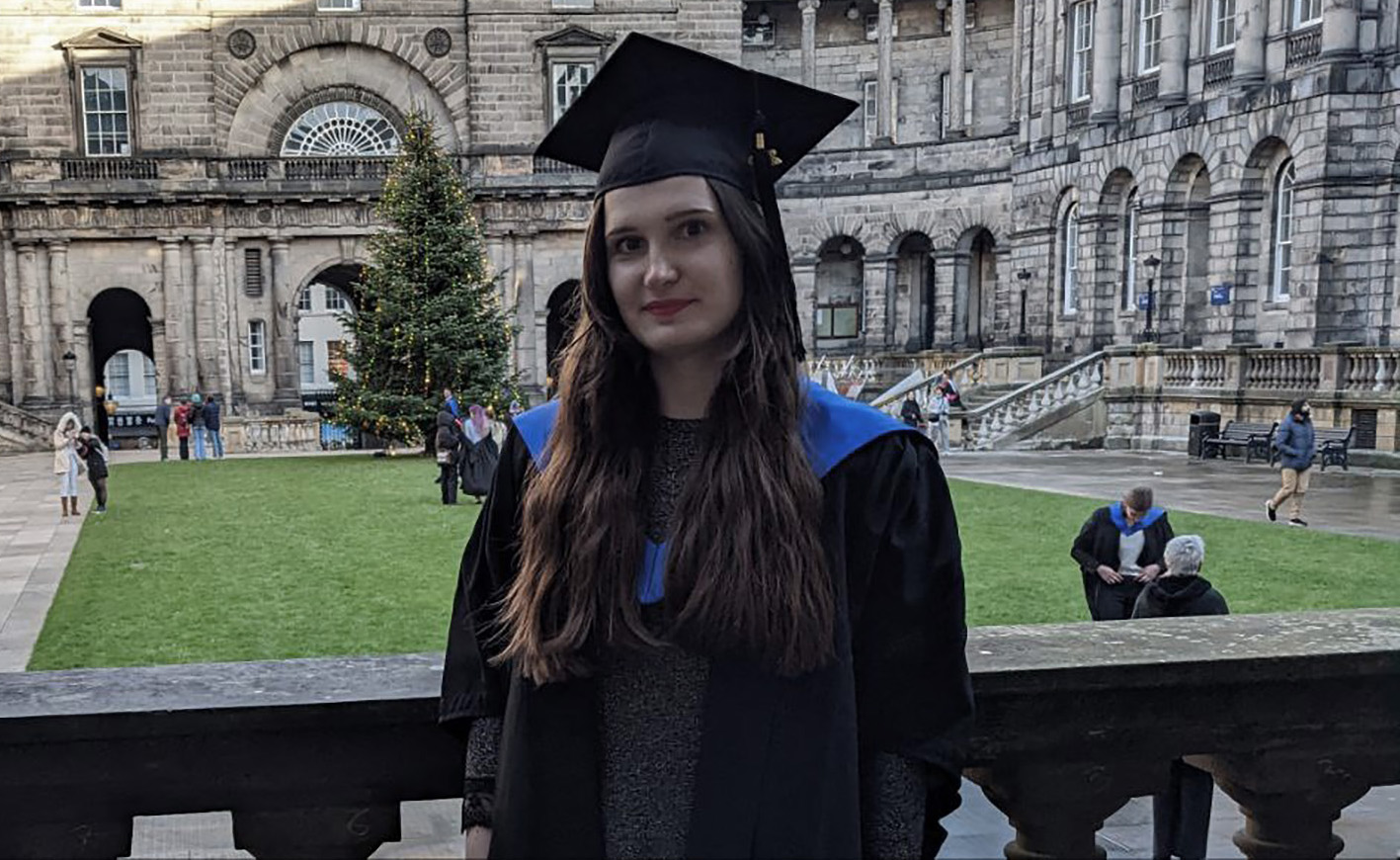
This program is unique because I could not find anything similar in quality and content either in my home country or in other European countries. The program ‘Intellectual Property Law’ is good in its versatility, it provides general information about the subjects of IP law and draws you into detailed discussions on current topics in this area. The freedom to choose some courses gives you the opportunity to realise your full potential.
Even though my studies took place during the active spread of Covid, Edinburgh Law School quickly adapted to the new reality and the quality of education even improved with the use of new technologies. Moreover, I constantly felt support from the Postgraduate Office and the Programme Director."
Due to my passionate interest in intellectual property law, once I obtained my LLB degree in China, I chose to pursue an LLM in this subject at the University of Edinburgh.
The programme here provided me with the unique opportunity of studying IP at international level and communicating with fellow students from a variety of backgrounds.

The programme completely satisfied all my demands. The multifarious and thoroughly professional seminar-based courses were both fully interactive and inspirational, focusing not only on the fundamental principles but also on the issues and authentic effects of IP systems in practical scenarios. I have great admiration for these excellent courses which covered academic expertise from both international and domestic perspectives.
In addition, I have immense appreciation for every member of academic staff, particularly regarding their work during the COVID-19 pandemic. They are all incredibly knowledgeable and considerate and have provided me with irreplaceable support.
Living in this mesmerising city made every day a pleasure. The unprecedented academic and personal experience during this year will have a long-lasting effect on my life.
Hanrui studied the LLM in Intellectual Property Law in the academic year 2019-20, graduating in 2020.
Marleen studied the LLM in Intellectual Property Law in the 2018-19 academic year, graduating in 2019.
"After graduating from law school in Germany, I was looking for a programme which combines fundamental principles of a foreign system of intellectual property rights with in-depth discussions with classmates coming from various countries on issues deriving from ongoing technological progression.

With seminars based on an interactive teaching method, the programme at the University of Edinburgh perfectly matched my interests and helped me to define my academic career in a field of law of ever-increasing importance. The variety of course choices was particularly valuable. In addition to courses on the domestic intellectual property law system, I also got the chance to get an international perspective on the subject. Moreover, I appreciated how the broad variety of courses enabled an insight on the interface between intellectual property rights and human rights as well as European competition law.
The excellent academic education, the approachable lecturers and the vibrant student life in Edinburgh (including various student societies and sport clubs) made my year abroad an exciting and enriching chapter. The specialist knowledge I acquired during the year will be very valuable during my clerkship and my future career in intellectual property law."
Applications for the 2024-25 academic year have now closed. Applications for entry in 2025-26 will open in October 2024.
Please note that the information provided is for entry in the 2024-25 academic year and requirements for future academic years may differ.
This programme can be taken full-time over one year, or part-time over two years subject to visa restrictions.
Due to high demand, the school operates a number of selection deadlines. We will make a small number of offers to the most outstanding candidates on an ongoing basis, but hold the majority of applications until the next published selection deadline when we will offer a proportion of the places available to applicants selected through a competitive process.
We recommend that you apply as early as possible. This is particularly important for applicants who may need to allow sufficient time to take an English language test, for overseas students who may need time to satisfy necessary visa requirements and/or to apply for University accommodation.
We require a minimum 2:1 honours degree from a UK university, or its international equivalent, in law. We may also consider candidates with a UK 2:1 honours degree, or its international equivalent, in a non-law subject if they can demonstrate prior high-level study or experience of intellectual property topics. Entry to this programme is competitive. Meeting minimum requirements for consideration does not guarantee an offer of study.
Supporting your application
- Relevant work experience is not required but may increase your chances of acceptance.
- Relevant professional qualifications will be considered.
- Preference will be given to those with grades above the minimum requirements due to strong competition for places on this programme.
International qualifications
You can check whether your degree qualification is equivalent to the minimum standard before applying.
Check your degree
Students from China
This degree is Band A.
Find out more about our postgraduate entry requirements for students from China
Postgraduate study in the field of law requires a thorough, complex and demanding knowledge of English, so we ask that the communication skills of all students are at the same minimum standard.
You must demonstrate a level of English language competency at a level that will enable you to succeed in your studies, regardless of your nationality or country of residence.
English language tests
We accept the following English language qualifications at the grades specified:
Two year expiry
- IELTS Academic / IELTS Academic for UKVI and IELTS Academic Online : total 7.0 (at least 7.0 in the writing component and 6.5 in each other module)
- TOEFL-iBT (including Special Home Edition): total 100 (at least 25 in writing and 23 in each other module)
- Trinity ISE: ISE III with a pass in all four components
- PTE Academic: 70 overall with at least 70 in the writing component and 62 in each other component *Please note that we have suspended acceptance of PTE Academic Online with immediate effect*
- Oxford ELLT (Global and Digital): 8 overall with at least 8 in the writing component and 7 in each other component
Three and a half year expiry
- C1 Advanced, formerly known as Cambridge English: Advanced (CAE)
- C2 Proficiency, formerly known as Cambridge English: Proficiency (CPE)
Your English language qualification must be no more than two years old from the start of the month in which the programme you are applying to study begins, unless you are using CAE/CPE, in which case it must be no more than three and a half years old on the first of the month in which the degree begins.
Degrees taught and assessed in English
We also accept an undergraduate or postgraduate degree, that was taught and assessed in English in a majority English speaking country as defined by UK Visas and Immigration (UKVI). The UK Government's website provides a list of majority English speaking countries.
View the UKVI list of majority English speaking countries
We also accept an undergraduate or postgraduate degree, or equivalent, that has been taught and assessed in English from a university on our list of approved universities in non-majority English speaking countries.
Approved universities in non-majority English speaking countries
If you are not a national of a majority English speaking country, then your degree must be no more than five years old at the beginning of your programme of study.
View approved universities in non-majority English speaking countries
Your application may not be successful if you do not currently satisfy any of these requirements; alternatively, you may be offered a place conditional on your reaching the satisfactory standard by the time you start the degree.
Find out more about the University's English language requirements
Pre-sessional English for Academic Purposes
We also accept satisfactory completion of our English for Academic Purposes programme as meeting our English language requirements. You must complete the programme no more than two years and one month before the start date of the degree you are applying to study.
Find out more about the University's Pre-sessional English for Academic Purposes
English language support
The University runs a series of programmes for English Language Education, including a pre-sessional English Language Programme intended to strengthen your English Language skills before you start your programme of study.
Find out more about English language support offered by the University
Deadlines for applicants applying to study the LLM in Intellectual Property Law in 2024-25 are provided in the table below.
| Round | Application deadline | Decisions by |
|---|---|---|
| 1 | 13 November 2023 | 14 December 2023 |
| 2 | 04 January 2024 | 20 February 2024 |
| 3 | 04 March 2024 | 29 April 2024 |
| 4 | 01 May 2024 | 25 June 2024 |
| 5 | 21 June 2024 | 17 July 2024 |
We monitor application numbers carefully to ensure we are able to accommodate all those who receive offers. It may therefore be necessary to close a programme earlier than the published deadline and if this is the case we will place a four-week warning notice on the relevant programme page.
Please note that the deadline for meeting the conditions of an offer is 18 August 2024.
Applications are made online via the University Application Service, EUCLID.
Please follow the instructions carefully and make sure that you have included the following documentation with your application:
- You will need to submit a personal statement of around 500 words, outlining your academic history and relevant experience. Guidance on writing your personal statement .
- Degree certificates showing award of degree
- Previous academic transcripts for all past degree programmes (please upload the full transcript showing results from all years of study)
- A reference in support of your application. The reference should be academic and dated no earlier than one year from the start of study on the LLM programme
- Evidence of English language proficiency, if required
If you are currently studying for your degree or you are not in a possession of an English test result you may still apply to the programme. Please note that it is your responsibility to submit the necessary documents.
Please be aware that applications must be submitted and complete, i.e. all required documents uploaded, by the relevant application deadline in order to be considered in that round. Your application will still be considered if you have not yet met the English language requirement for the programme.
View full detailed application guidance
Students at this University must not undertake any other concurrent credit bearing studies in this (or in any other) institution, unless the College has granted permission. The College must be satisfied that any additional credit-bearing studies will not restrict the student’s ability to complete their existing programme of study. Students will not be permitted to undertake concurrent degree programmes in any circumstances.
If you are studying at this or another institution just prior to the start of your postgraduate studies you must have finished these studies before the start of the programme to which you have an offer.
After your application has been submitted you will be able to track its progress through the University's applicant hub.
Application processing times will vary, however the admissions team will endeavour to process your application within four to six weeks of submission. Please note that missing documentation will delay the application process.
You will be informed as soon as possible of the decision taken. Three outcomes are possible:
- You may be offered a place unconditionally
- You may be offered a conditional place, which means that you must fulfil certain conditions that will be specified in the offer letter. Where a conditional offer is made, it is your responsibility to inform the College Postgraduate Office when you have fulfilled the requirements set out. Please note that the deadline for meeting the conditions of an offer is 18 August 2024.
- Your application may be unsuccessful. If your application has not been successful, you can request feedback from us or refer to our guidance for unsuccessful applicants, which explains some of the common reasons we why we reach this decision. View the University's guidance for unsuccessful applicants
Deferring your offer
We do not normally offer deferrals, however, we may be able to make a very limited number of offers for deferred entry in exceptional circumstances.
View full guidance on deferral requests
If you receive an offer of admission, either unconditional or conditional, you will be asked to pay a tuition fee deposit of £1,500 (within 28 days of receiving your offer) to secure your place on the programme.
Find out more about tuition fee deposits
The University’s terms and conditions form part of your contract with the University, and you should read them, and our data protection policy, carefully before applying.
University of Edinburgh admissions terms and conditions
If you have any questions about applying to the LLM in Intellectual Property Law please don't hesitate to contact us.
Key information
Llm and msc programmes.

SCRIPT Centre website

Why Edinburgh Law School?

News and events

The WIPO Academy Joint Master's Programs in Intellectual Property Law
The WIPO Academy offers eleven Joint Master’s Programs in intellectual property (including LL.M. programs) in cooperation with prestigious universities and IP offices across the world. The programs run for a year to a year and a half, and the curricula are jointly developed by the WIPO Academy and respective partner institutions.
The WIPO Academy has established a University Partnerships Program through which we created our Joint Master’s programs in IP with 18 reputable universities across 17 different countries (Argentina, Bulgaria, Cameroon, China, Italy, India, Kazakhstan, Morocco, Oman, Philippines, Poland, Republic of Korea, Saudi Arabia, Singapore, Spain, Türkiye and Zimbabwe). Our Joint Master’s programs are available in four different languages including Arabic, English, French, Russian and Spanish, depending on the selected university.
Curriculum of the WIPO Academy Joint Master’s Programs in IP
The WIPO Academy Joint Master’s programs in intellectual property are increasingly specialized in different areas of IP, shifting from the purely legal aspects of the subject to more entrepreneurial skills such as IP management, business management and applied research connected to the way in which IP can be used to support business growth and economic and social development.
Application for a Joint Master in IP

Apply for one of the WIPO Academy's 18 Joint Master's Programs in IP offered with prestigious universities all over the world.
Apply now Download the brochure -->
Specializations in patent law and design law, industrial property, innovation, new technologies and development policy are covered in the program offerings. Most of the Joint Master’s Programs cover core topics such as:
- Trademarks and geographical indications;
- Industrial designs;
- Copyright and related rights;
- Traditional knowledge, folklore and genetic resources;
- Transfer of technology, IP management and strategic planning;
- Innovation and entrepreneurship;
- New IP rights;
- IP and small and medium-sized enterprises (SMEs) and large enterprises;
- Enforcement of IP rights; and
- IP, unfair competition and antitrust law.
The WIPO Academy Joint Master’s Programs in IP combine a distance learning phase, a residential phase on campus of partner universities and a dissertation / final research project phase. Skilled and experienced faculty members teach on the courses covered across programs. Teaching methods include:
- case studies,
- group discussions, and
- in some cases skills development and distance learning.
Where possible, participants are given the opportunity for a hands-on experience through internships at WIPO, regional IP offices, national IP offices or in private companies.
The application processes and fees for the Joint Master’s Programs on IP differ from program to program, as the partner universities involved require different admission requirements and incur varying course fees. Please consult the admission details provided for each program on the WIPO eLearning Center. Applications must be submitted on both the WIPO eLearning Center and the partner university website.
Scholarships for these Joint Master’s Programs are available to qualified nationals from relevant public sector institutions and universities in developing countries, LDCs and countries with economies in transition. Applications must be supported by their respective governments and academic institutions.
Interested candidates from developed countries are also welcome to apply and, if admitted, must finance their tuition, accommodation and travel costs.
Testimonials from the WIPO Academy’s Joint Master’s Programs Alumni
Over 2,500 graduates have completed the WIPO Academy Joint Master’s Programs in IP since it launched in 2002.

" By studying IP, I felt like I could make a difference in my country to help ensure that it has a system of IP protection for entrepreneurs, innovators and creators. WIPO was an amazing source of support during my studies, and KDI School was a great place to study. The professors were all great experts in their fields of IP and the participants all brought different perspectives on IP given their different country backgrounds .” – Liliyana da Silva, WIPO Academy alumna (Timor-Leste).
(Photo: KDI School)

"I strongly encourage my fellow Latin American scholars to enroll in the Joint Master’s Program in IP and Innovation offered by WIPO and the University of San Andrés, because you won’t only walk away with the knowledge to strengthen society, but you will also gain a supportive community of alumni from the program. It really creates a fertile ground to build a scholarly community, and an invaluable support system .” – Micaela Mantegna, WIPO Academy alumna (Argentina)
(Photo: Micaela Mantegna)
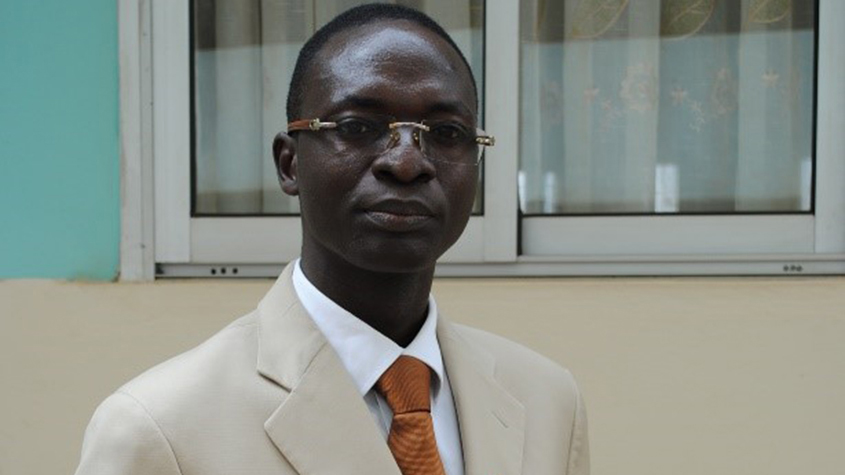
" The Master’s degree program with the WIPO Academy, OAPI and University of Yaoundé II was very practical and very intensive but I felt very supported by the organizers. I appreciated that the students on the program came from all over the world. To this day I am still in touch with the alumni from my cohort and we support each other whenever possible. It is a great support system .” – Amah Dondinaa Gnassingbe, WIPO Academy alumnus (Togo)
(Photo: Amah Dondinaa Gnassingbe)

" The training on the commercialization of IP that we were provided during our studies inspired us to use our legal expertise and entrepreneurial spirit to promote the protection of local arts and traditional knowledge. We decided to go from classmates to professional partners with the start of our innovative law firm, 'Apeiron Law & IP'. Our collaboration with the art gallery 'Apeiron Art+' in İstanbul is disrupting the traditional legal industry with the focus on contemporary art consisting of the Anatolian cultural heritage. Our art collective, also based in Istanbul, introduces local artists and aims to create a platform that brings together different styles from various regions, and invites the world to engage with Anatolia's hidden cultural heritage .” – Berra Aktan and İlay Yüce, WIPO Academy alumni (Türkiye).
(Photo: Berra Aktan and İlay Yüce)
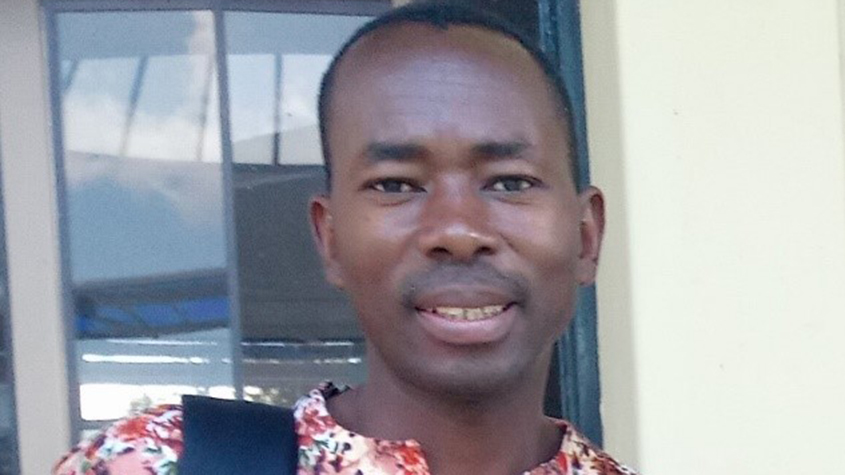
" The MIP with the WIPO Academy, ARIPO and Africa University has shaped my IP dreams, thinking capacity, and experiences. Moreover, it has connected me to the world class of IP professionals .” – Moses Range, WIPO Academy alumnus (United Republic of Tanzania).
(Photo: Moses Range)

" It was a great opportunity to meet new people from all over the world at the ITC-ILO Campus in Turin, and it also enabled me to develop a resourceful professional network which is very helpful to have. Academically, the LL.M. added value to my CV and gave me a plethora of technical knowledge on IP, as it is a technically excellent program .” – Sofia Ludovica Barabino, WIPO Academy alumna (Italy)
(Photo: Sofia Ludovica Barabino)

" I strongly believe that WIPO-Tongji University MIP is a great opportunity to learn and explore new regimes of IP and technology commercialization at the international level. As a result of this program, I have not only built a very strong network with individuals from different parts of the world, but also developed a strong professional profile in the areas of IP, innovation and technology transfer .” – Mohsin Ali, WIPO Academy alumnus (Pakistan)
(Photo: WIPO/Berrod)
Partners of the WIPO Joint Master’s Degree Programs
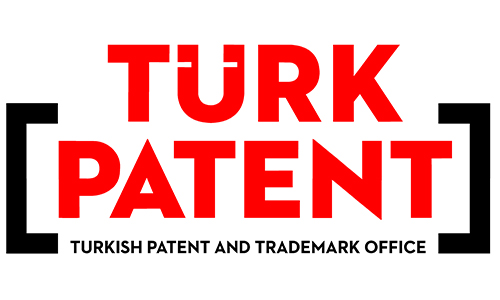
2024-25 Bulletin
Llm in intellectual property & technology law.
The Master of Laws (LLM) in Intellectual Property & Technology Law (IP/TL) is a one-year graduate degree program that responds to the demand for knowledgeable and skilled intellectual property professionals who have already earned a basic law degree. The IP/TL curriculum allows students to study introductory and advanced intellectual property law and to scrutinize the politics affecting those areas of the law under the guidance of leading scholars in the field. Students participate in practical skills courses taught in small groups by teams of experienced intellectual property lawyers.
The IP/TL LLM student body is drawn from two distinct sources. First, we admit JD graduates from across the United States who desire to focus their legal expertise through one year of intensive study of intellectual property law. Second, we admit experienced intellectual property attorneys from abroad who want to broaden their knowledge to include U.S. and international intellectual property.
Contact Info
| Phone: | 314-935-3346; Fax: 314-935-7961 |
| Email: | |
| Website: |
LLM in Intellectual Property and Technology Law (IP/TL)
To earn the Intellectual Property and Technology Law LLM degree, a student must successfully complete 24 units of courses, 15 credits of which must come from the IP/TL curriculum. Students may also earn up to 6 units from related courses in other schools in Washington University that support their research interests.
Internships
IP/TL LLM students are encouraged to apply for unpaid internships either during their academic program or during the summer after completing the program. Alumni and friends of the LLM program offer students opportunities at in-house counsel settings and at law firms of all sizes.
- How to Contact Us
- Library & Collections
- Business School
- Things To Do
Intellectual Property Law

- September 2024
1 year full-time
Durham City
Course details
The LLM in Intellectual Property Law offers you the opportunity to develop an in-depth knowledge of this contemporary subject, in keeping with its rapidly growing importance in enabling the legal and proper function of a global economy.
In essence, intellectual property law serves to regulate the creation and application of mental or creative labour, providing protection for information and ideas by means of a range of legal mechanisms that include copyright, patents and trademarks. The right to intellectual property is essential to success in a vast number of business and creative sectors, encompassing such disparate areas as science, art, advertising, music, product design, trade reputations, medicines and knowledge.
The course takes a national and international view of this fascinating legal world, enabling you to develop a solid grounding in copyright, patents and trademarks from a UK and European perspective through the completion of a compulsory foundation course.
You will then begin a more advanced stage of learning that will focus on current and emerging topics in intellectual property law, such as artificial intelligence, access to medicines and patents in the life sciences. You will also produce a dissertation on an intellectual property law topic of your choice.
The law department has a global reputation for its academic standards and the quality of its teaching which takes place in a supportive learning environment, offering a range of extracurricular activities.
You will be encouraged to attend the various events organised through the school’s research centres, including the Centre for Ethics and Law in the Life Sciences, the Institute of Commercial and Corporate Law and the Durham European Law Institute.
Course Structure
Core modules.
Applied Research Methods in Law provides specialised knowledge on the range of research methods and skills available in legal studies as well as an advanced understanding of their strengths and weaknesses and of their relevance for different forms of legal research. The module also creates a framework within which you will be able to critically assess potential research topics and, importantly, where you will be able to design, discuss and develop a detailed research proposal of the appropriate standard for your dissertation.
Introduction to International Intellectual Property Law examines the fundamental aspects of the ownership and exercise of intellectual property rights and teaches you about the granting criteria and exercise of intellectual property rights at the national, European and international level. The module also introduces you to the legal, moral, social and political debates which inform the subject matter and the scope of the various rights at home and abroad. You will be given an introduction to the three main areas of intellectual property, patents, copyright and trademarks and learn about the current policy and practice of the leading institutional bodies charged with responsibility for administering intellectual property rights.
Advanced Issues of International Intellectual Property Law
The Dissertation is based on an area of intellectual property law and can be of one of three lengths – 10,000 or 15,000 words. The dissertation is equivalent to 2 or 2.5 modules, depending on word count.
The remainder of the course is chosen from an extensive range of optional modules. Indicative optional modules include the following:
- Advanced Issues in Human Rights
- Advanced Issues in International Economic Law
- Contemporary Issues of International Intellectual Property Law
- China and the International Legal Order
- Current Problems in International Law
- Free Speech Problems in International and Comparative Perspective
- Global Environmental Law
- Horizontal Human Rights
- International Counter Terrorism: Theory and Practice
- International Humanitarian Law
- International Investment Law
- International Perspectives on Law and Gender
- International Protection of Human Rights
- International Tax Law
- International Trade Law and Policy
- Introduction to EU Law
- Introduction to International Criminal Justice
- Law of the Sea
- Multinational Corporations and Human Rights
- Advanced Issues in Corporate Law
- Advanced Law of Obligations
- Competition Law
- Corporate Compliance
- Cross-Border Commercial Litigation
- Current Issues in Commercial Law
- Frontiers in Biolaw
- Fundamentals of Corporate Law
- International Commercial Dispute Resolution
- International Sales Law
- Introduction to Corporate Governance
- Law of Oil and Gas Contracts
- Medical Law and Ethics
- Mergers and Acquisitions
- Takeover Regulation in the EU
Create Your Own Prospectus
/prod01/prodbucket01/media/durham-university/study/individual-course-and-cta-images/Postgraduate-Prospectus.png)
Explore Our Scholarships
/prod01/prodbucket01/media/durham-university/study/individual-course-and-cta-images/Postgraduate-Scholarships.png)
Meet Our Students
/prod01/prodbucket01/media/durham-university/study/individual-course-and-cta-images/Postgraduate-Meet-Students.png)
Book an Open Day
/prod01/prodbucket01/media/durham-university/study/individual-course-and-cta-images/Book-an-Open-Day.png)
The course involves both taught modules and a substantial dissertation component. Taught modules are delivered by a mixture of lectures and seminars amounting to 15-30 contact hours per module.
Lectures are used primarily to introduce chosen topics, identify relevant concepts, and introduce you to the main debates and ideas relevant to the chosen topic. Seminars are smaller-sized, student-led classes for which you will be expected to carry out reading prior to classes.
Through class discussion, or the presentation of papers, you are given the opportunity to test and refine your knowledge and understanding, in a relaxed and supportive environment.
In addition to taught modules, you must produce a dissertation which is the product of your own independent research. Depending on the route chosen your dissertation can be anywhere between 10,000 and 15,000 words.
The assessment regime is rigorous and carried out through writing tasks with the majority of the modules assessed through essays of 3,000-6,000 words in length. The core module on applied research methods will be assessed on a proposal you will present for a research topic. Finally, you will present a dissertation on an area of intellectual property law that is of particular interest to you.
Entry requirements
The course will demand a good degree in law or in a related discipline.
In the United Kingdom, a 2.1 or equivalent will be the minimum requirement.
Students with overseas qualifications will conform to the minimum requirements for admission.
English language requirements
Fees and funding
Full time fees.
| Home students | £12,750 per year |
|---|---|
| EU students | £26,900 per year |
| Island students | £12,750 per year |
| International students | £26,900 per year |
The tuition fees shown are for one complete academic year of full time study, are set according to the academic year of entry, and remain the same throughout the duration of the programme for that cohort (unless otherwise stated) .
Please also check costs for colleges and accommodation .
Scholarships and Bursaries
We are committed to supporting the best students irrespective of financial circumstances and are delighted to offer a range of funding opportunities.
Career opportunities
Our global reputation for legal research and teaching of the highest quality is reflected in the career trajectory of our alumni.
Graduates serve across the full range of legal professions including solicitors, barristers, judges, members of the Supreme Court, the Court of Appeal and as consultants and in government. Others have secured stimulating and rewarding positions in national and international law firms.
We are fully aware of the degree of competition that exists in securing a role in the legal profession and the School provides a range of resources to help alumni stand out as ideal candidates during the recruitment process. This includes detailed information about the steps involved in becoming a solicitor or barrister, visits from law firms and guidance on preparing for interviews and assessment days.
Department information
Durham Law School is a global leader in the development and framing of law. Led by academics who are experts in their field, we carry out cutting-edge legal research that feeds into our Masters and research qualifications, building knowledge and nurturing the skills needed to help shape law in the future.
The reputation of the School means our legal know-how is respected by parliamentarians and policy makers around the world. Our academics have been called to give evidence in Parliament and have had their research work quoted by courts and international bodies.
International law and questions of global policy and governance are an area of special interest at Durham, but our expertise extends to other areas including criminal law and criminal justice, ethics, human rights, European law, gender and law, Chinese law, Commercial and Corporate law and Global Justice.
The research-led learning environment in the School is one of commitment, innovation and passion for the subject. Our highly respected research groups organise lectures and seminars offer opportunities to hear from eminent scholars and practitioners. Speakers have included judges from the UK Supreme Court, from the European Court of Justice and leading officials from national and international institutions.
For more information visit our department pages.
- World Top 50 in the QS World University Subject Rankings 2023
- 6th in The Complete University Guide 2024
- Top 10 in The Guardian University Guide 2024
- Top 10 in The Times and Sunday Times Good University Guide 2024
For a current list of staff, please see the Law School pages.
Research Excellence Framework
- 5 th in the UK for research environment
- 100% of our research impact and environment was rated world-leading or internationally excellent
Situated close to a number of academic departments and University services with views of the magnificent Durham Cathedral as well as offering easy access to the historic city, we believe that we have one of the most striking and best-equipped law buildings in the UK.
The Law School is located in the University’s award-winning flagship Palatine Centre, part of a £48.4m sustainable building development.
The School’s facilities are purpose-built and state-of-the-art, featuring a moot court, pro bono room, Harvard-style Hogan Lovells lecture theatre, spacious dedicated work suites and modern wireless and audio-video-enabled research spaces and attractive social areas.
Find out more:
Apply for a postgraduate course (including PGCE International) via our online portal.
- Applicant Portal (not PGCE unless International)
- Admissions Policy
The best way to find out what Durham is really like is to come and see for yourself!
Join a Postgraduate Open Day
- Date: 01/09/2023 - 31/08/2024
- Time: 09:00 - 17:00
Self-Guided Tours
- Time: 09:00 - 16:00
Similar courses
Corporate law - llm.

European Trade and Commercial Law - LLM
International environmental law - llm, international law and governance - llm, international relations (european) - ma, international trade and commercial law - llm, master of laws - llm, medical law and ethics - llm.
- See more courses
/prod01/prodbucket01/media/durham-university/study/individual-course-and-cta-images/M1KB16.jpg)
LLM Program
Academic Excellence Collegial Culture
Graduate Admissions
- LLM Wharton Certificate
- Application Info
- Tuition and Financing
- Waiver Requests
- SJD Program
- LLCM Program
- Visiting Scholars and Researchers
- Connect with Us
The Penn Carey Law LLM is a rigorous, full-time academic program designed for lawyers trained outside the United States. This general LLM degree allows customize your curriculum to focus on a specific area of law or to explore new interests. You can also choose from two concentrations: Intellectual Property and Technology Law and Energy, Security, and Human Rights.
As a Penn Carey LLM student, you can enroll in the Wharton Business and Law Certificate (“WBLC”) taught by leading Wharton faculty, the WBLC program is exclusively for Penn Carey Law LLM students. This program runs concurrently with the LLM program and does not require a separate application.
Your LLM at Penn Carey Law begins with an innovative Pre-term Program which provides a strong foundation in the U.S. legal system as well as social, cultural, and professional opportunities. By September, you are prepared for your classes alongside JDs and to fully integrate into Penn Carey Law’s collegial community.
Select from a broad range of outstanding course offerings taught by world-class faculty who are celebrated scholars and devoted teachers. Gain real world U.S. legal experience by engaging in our LLM Public Service Program, clinics, bootcamps, practice-focused classes. Enhance your workplace skills and explore career opportunities with support from a dedicated LLM Career Counselor, who organizes programs designed specifically for LLM students, including resume and cover letter drafting, networking, and interview skills programs to help you connect with potential employers.
Whatever your interests are, there are student groups through which you can engage with your fellow LLM and JD students. Options range from athletic clubs to academic and professional organizations to student run journals. Past LLMs have joined the Journal of International Law, Journal of Constitutional Law, Asian Law Review, and Journal for Law and Social Change.
Program Details
Pre-term program .
This innovative program provides an academic grounding in the U.S. legal system as well as social, cultural, and professional opportunities.
The program includes two introductory courses:
Foundations of the U.S. Legal System: This intensive, advanced-level survey course addresses aspects of U.S. legal thought and practice that are likely to be unfamiliar to most lawyers trained outside of the United States.
U.S. Legal Writing/Research: This course covers the basic skills of U.S. lawyering, including predictive analyses, writing, effective and efficient communication, and basic legal research.
The program also features information from:
- Student Affairs : making the most of a year of study at a U.S. law school
- Office of Career Strategy : understanding the US legal market, the art of networking, and job search strategies
- Information Technology Services : training on Penn Carey Law technology resources
- International Student Services: visa registration and related requirements
- Graduate Programs: continued study of law in the United States and Bar Information
- Academic Success: taking exams and preparing for classes
- Diversity, Equity and Inclusion: learn how diverse identities, experiences, and perspectives strengthen our community
In addition, you will engage in team building events and field trips to get to know your classmates and new home.
Office of Career Strategy
The Law School’s Office of Career Strategy (OCS) assists students with their job searches and with enhancing their professional skills.
LLM students who are considering new employment opportunities, as well as those planning to return to their current employer, are encouraged to utilize OCS.
The Law School has an LLM Career Counselor, who organizes programs designed specifically to LLM students, including resume and cover letter drafting, and on networking, an interview skills programs, training in various electronic and other sources to give you information about employers, a mock interview program, and an attorney mentor program. OCS also brings in various speakers throughout the year. In addition, OCS asks recent graduates to come back each year to speak about the job search process from their point of view.
OCS counselors work with LLMs individually to assist with designing a personalized job search strategy. They will review your resume and cover letters, conduct mock interviews, and answer career-related questions.
OCS also markets our LLM students to the legal community. We send out brochures to firms, corporations, and banks that highlight the advantages of hiring LLMs. In past years, members of our staff have written articles and lectured in legal arenas with the sole purpose of publicizing our LLMs, in the hope of generating more employment opportunities. In addition, LLM students are welcome to participate in the International Student Interview Program (“ISIP”) each January. Learn more about ISIP.
However, be advised that OCS does not obtain employment opportunities for students. It is incumbent upon all students, JD students and LLM students alike, to work very hard on their own job searches, making contacts with employers, pursuing opportunities, and following up on all possibilities.
We also want to take a minute to talk to you, frankly, about the great difficulty LLMs have in finding legal employment here in the United States due to significant structural barriers. This is in contrast to the excellent opportunities many of our LLM graduates secure in their home countries or sometimes in a third country.
Each year, some of our LLM students seek employment in the United States, either on a temporary basis (for example, a three to six month period or a one or two year period prior to returning to their home country) or on a more permanent basis. Unfortunately, it is very difficult for LLM graduates from any LLM program in the United States to find a law-related job in the United States today.
Those candidates who are successful at securing employment in the U.S. generally do so by networking with contacts from their own country before arriving in order to set up interviews in the U.S. The successful LLM candidate is typically one who can demonstrate to a U.S. firm that they will be a source of client expansion and income to the firm.
We pass on this information not to disappoint you, but rather to give you a realistic picture of the job market prior to your decision to attend Penn Carey Law School or any other LLM program in the U.S. It is important to note that many of our LLM graduates leverage their degree into better positions either in their home country, or somewhere else outside the U.S. Our LLM alumni have become leaders around the world in law firms, business, government, and other areas.
Regardless of their paths after graduation, LLM students at the University of Pennsylvania find their experience here rewarding both personally and professionally. Many find that their experience here enables them to return to practice in their home country with the benefit of valuable new contacts in the U.S. and a thorough education in U.S. law and practice.
Dual Degree with Sciences Po
A HIGH STANDARD MULTICULTURAL PROGRAM IN FINANCE AND LAW
The Dual Master’s degree program in International Finance and Law is a two-year full time Master’s Program. Spanning a wide range of disciplines, this program offers core courses in management, finance and law.
The curriculum blends financial and legal expertise and professional skills courses. It is designed to offer advanced education in the area of financial law and to give students the opportunity to develop a top-level career in the private, public or non-profit sectors.
All students will spend their first year at Sciences Po, and their second year at Penn Carey Law. After two years of study, and provided credits have been completed in both institutions, students will receive Master’s degrees from both Sciences Po (Master’s in Finance and Strategy or Master’s in International Management and Sustainability) and Penn Carey Law (LLM).
The faculty involved in this program is comprised of internationally renowned academics and practitioners. By joining both the Penn Carey Law and Sciences Po communities, dual degree students will be able to benefit from the exceptionally stimulating intellectual environment of both institutions during the duration of the program, and to extend their networks and opportunities to both sides of the Atlantic as alumni.
Students participating in the program will have access both at Sciences Po and at the University of Pennsylvania to all facilities normally offered to students, such as libraries, computer network, career services, sports facilities, and student associations and cultural life.
Year 1 at Sciences Po
Students who are jointly admitted will spend their first year of study at Sciences Po either in the Master Finance and Strategy (English taught - starting in academic year 2023) or in the Master in International Management and Sustainability (English taught):
- Master in Finance and Strategy (starting 2023 academic year, English taught program)
- Master in International Management and Sustainability (English taught program)
A specific concentration can appear on the Master’s degree at Sciences Po according to the courses completed at Penn Carey Law.
The Master in Finance and Strategy and the Master in International Management and Sustainability gather a very diverse student body, in terms of academic as well as cultural backgrounds, with more than 40% international students.
Year 2 at Penn Carey Law
Students spend their second year at Penn Carey Law with all the opportunities that other LLMs have, and are eligible to enroll in the Wharton Business and Law Certificate (WBLC).
HOW TO APPLY
Applicants to this dual degree should have completed an LLB, JD, or equivalent prior to matriculation in the LLM at Penn Carey Law (but need not necessarily have completed such degree by the time of application so long as completion is expected).
Applications will be done online via the Sciences Po Admissions website. Please visit our admission website or contact the Admissions service to learn more about the admission online process.
TUITION FEES
Students must pay the tuition fees applicable in their host institution (Sciences Po for Year 1 and Penn Carey Law for Year 2).
- Sciences Po School fees
- University of Pennsylvania Carey Law School Tuition and fees
FINANCIAL AID
Dual Degree students are eligible to the same financial aid as other students at Penn Carey Law for year 2. However, financial aid is limited and will not cover the total cost of the dual degree program. Students are therefore strongly encouraged to also look for external grants and fellowships.
Year 1: Financial aid at Sciences Po
More information about bursaries and financial assistance.
Year 2: Financial aid at Penn Carey Law
Dual Degree students are eligible for consideration for Penn Carey Law scholarships toward the tuition of the second year of the program. However, the process is competitive, and funding is limited. Accordingly, applicants should consider every option available to fully fund their studies at Penn Carey Law, including taking out private loans as well as government-sponsored ones. Incoming LLMs can indicate interest in being considered for Penn Carey Law scholarships by emailing [email protected] no later than March 1 of the year that will matriculate at Penn Carey Law.
More information about financing your education at Penn Carey Law .
Contacts at Sciences Po :
- Fleur de Marie Guillot , Academic Advisor, Master in Finance and Strategy
- Félicité Gasparetto , Academic Advisor, Master in International Management and Sustainability
- Admissions service
The LLM Experience
Student profiles.

Carolina Brandāo LLM

Yu-Po (Paul) Chang LLM

Zhixing Liu LLM

Daniel McKaveney LLM

Vyom Pankaj LLM

Pei-Chun (Peggy) Tsai LLM

Ruoyand Xu LLM
- <section class="video-section-block block-container"><div class="video-container relative"><div class="video-content relative"><svg xmlns:xlink="http://www.w3.org/1999/xlink" data-xmlns="http://www.w3.org/2000/svg" class="play-icon" width="73px" height="73px" viewbox="0 0 73 73" version="1.1"><g stroke="none" stroke-width="1" fill="none" fill-rule="evenodd"><g transform="translate(-751.000000, -2979.000000)" stroke="#FFFFFF" stroke-width="3"><g transform="translate(0.000000, 2398.000000)"><g transform="translate(707.000000, 139.000000)"><g transform="translate(44.000000, 442.000000)"><circle cx="36.5" cy="36.5" r="35"/><path d="M39.5,29.8301943 L29.7063715,45.5 L49.2936285,45.5 L39.5,29.8301943 Z" transform="translate(39.500000, 37.000000) rotate(90.000000) translate(-39.500000, -37.000000)"/></g></g></g></g></g></svg><h3> Penn Carey Law’s LLM: A World Class Experience </h3><a data-fancybox="" href="https://www.youtube.com/watch?v=7En9dapYT18" aria-label="Penn Carey Law’s LLM: A World Class Experience" class="link-fill"> </a></div><a data-fancybox="" href="https://www.youtube.com/watch?v=7En9dapYT18" aria-label="Penn Carey Law’s LLM: A World Class Experience" class="link-fill"></a><div class="video-background" style="background-image:url('https://img.youtube.com/vi/7En9dapYT18/maxresdefault.jpg'); "></div></div></section>
Apply to the LLM program today
LL.M. Program
5005 Wasserstein Hall (WCC) 1585 Massachusetts Avenue Cambridge , MA 02138
The LL.M. (Master of Laws) program is a one-year degree program that typically includes 180 students from some 65 countries. The Graduate Program is interested in attracting intellectually curious and thoughtful candidates from a variety of legal systems and backgrounds and with various career plans. Harvard’s LL.M. students include lawyers working in firms, government officials, law professors, judges, diplomats, human rights activists, doctoral students, business people, and others. The diversity of the participants in the LL.M. program contributes significantly to the educational experience of all students at the School.
LL.M. Degree Overview
Ll.m. degree requirements, academic resources, ll.m. class profile, modal gallery, gallery block modal gallery.
- Browse Law Schools
- LLM Articles
- LLM Info Events
- Law School Rankings
- Top 10 Lists
- LLM Scholarships
- LLM Discussions
- Application Tracker
- Advanced LLM Search
- UK / Ireland
- Australia / New Zealand
- Canada & Latin America
- Africa / Middle East
By Concentration
- General LL.M. Programs
- Alternative Dispute Resolution / Arbitration / Mediation
- American Law / U.S. Law
- Banking Law / Finance Law / Securities Law
- Business Law / Commercial Law
- Corporate Law / Company Law
- Human Rights
All Resources
- Concentrations
- Intellectual Property (IP) Law
LLM Programs in Intellectual Property (IP) Law - Europe
1-15 of 45 results sorted by featured popularity name city
15 All schools per page

Full-Time: Master in International Law, Foreign Trade & International Relations, Master in International Sports Law, Master in Sports Management and Le... more…
Distance Learning: Master in International Tax Advice, Master in Entertainment Law: Audiovisual, music, sports and entertainment industry, Master in Biotechnol... more…

Full-Time: Master of Intellectual Property & ICT Law, Master in Company Law, European Legal Informatics Study Programme (EULISP) - Master of Laws (LL.M... more…

Full-Time: LL.M. International Studies in Intellectual Property Law more…
-1a721.jpeg)
Full-Time: LL.M. in European Competition and IP Law more…
Full-Time: Deutsches und Europäisches Recht und Rechtspraxis (LL.M.), LL.M. in International Dispute Resolution (IDR), European Law and Comparative Law... more…
Dual Degree: Comparative Law Studies on German, European and Chinese Law (LL.M.) more…
Full-Time: Master of Laws (LL.M.) in Public International Law, Master of Laws (LL.M.) in Information and Communication Technology Law, Master of Laws (... more…
Part-Time: LL.M. in North Sea Energy Law more…
Full-Time: LL.M. in European Law, Advanced Master in Intellectual Property Law and Knowledge Management (LL.M./MSc), LL.M. in Dutch Law, LL.M. in Foren... more…
Full-Time: Master of Laws (LL.M.), LL.M. in European and Transnational Intellectual Property and Information Technology Law, LL.M. in International Law... more…
Dual Degree: Chinese Law and Comparative Law (LL.M./M.A.) more…
Part-Time: Master of Laws (LL.M.) in Intellectual Property more…
Full-Time: Master in Digital Law. Data, Algorithms and Artificial Intelligence (Master in Diritto digitale. Dati, algoritmi e intelligenza artificiale)... more…
Full-Time: LL.M. in International Law, LL.M. in European and International Business Law, LL.M. in Real Estate and Residential Property Law, LL.M. in Ta... more…
Part-Time: LL.M. in Family Business and Estate Planning, LL.M. in Human Rights, LL.M. in Information and Media Law more…
Full-Time: Master of Laws (LL.M.) in International Commercial Arbitration, Master of Laws (LL.M.) in European Economic Law, Master of Laws (LL.M.) in E... more…
Full-Time: European Legal Informatics Study Programme (EULISP) - Master of Laws (LL.M.) in IT-Law and IP-Law more…
Full-Time: Master in European Union Law, Master in Intellectual Property, Master in Advanced Human Rights Studies, Master in Business Legal Advice, Mas... more…
Full-Time: Master of Laws in Intellectual Property and Competition Law more…
Related LLM News

Employment Reaches Record High for 2023 Law Grads
Aug 09, 2024
More LLM News
Related Articles

How LL.M. Programs Can Prepare a Candidate to Become a Judge
Aug 26, 2024
For many, the journey to the bench is greatly enhanced by pursuing an LL.M. degree.

Choosing Your LL.M.? Here’s Why Faculty Should Be at the Top of Your List
Aug 20, 2024
The professors who lead, mentor and inspire students can profoundly shape the academic experience and future career paths of LL.M. students.

Five Careers (Besides Lawyer) you Can Pursue with Your LL.M.
Aug 14, 2024
Advanced legal knowledge and skills acquired through an LL.M. degree can open doors to a variety of exciting and impactful careers besides becoming a lawyer.
More Articles
- Career Advice for American with JD and EU Citizenship Aug 09, 2024 70 0
- Utrecht Law and Economics program Aug 09, 2024 100 1
- Gottingen LIPIT 2024-2025 Cohort - Whatsapp Group Jul 13, 2024 89 0
- LLM Panthéon-Assas Jun 27, 2024 170 0
- LLB to M1 Jun 10, 2024 126 0
- LLM in Saarland University or Würzburg University May 31, 2024 234 0
- LLM now + work or LLM in 2 years? May 22, 2024 368 1
- Leiden - Advanced LLM International Civil and Commercial Law Apr 24, 2024 268 0
- Leiden University - 2024/25 Admitted Students Discussion Apr 15, 2024 297 0
- LLM in Tax Law 2025 Mar 22, 2024 520 1

More Top Lists
- Terms of Use
- Cookie Policy
- Privacy Policy
Information
- Featured LLM Programs
- MBA Programs
- Online MBA Programs
- Executive Courses
Search LLM Programs
Go to Advanced Search
Subscribe to the LLM GUIDE Newsletter
Receive the latest news and tips
© 2001–2024 Pritzwalks – LLM GUIDE – Master of Laws (LL.M.) Programs Worldwide

IMAGES
COMMENTS
Fort Worth, Texas 11 Followers 3 Discussions. Texas A&M School of Law offers a top Intellectual Property (IP) Law Graduate Program, featuring LL.M. and MLS degrees tailored to meet the demands of the global economy. The school consistently ranks among the top 10 in the United States according to U.S. News and World Report.
All LLMs are eligible to enroll in the Wharton Business and Law Certificate, a program custom designed for LLMs taught by Wharton faculty. Our LLM degree begins with a unique pre-term summer program that prepares students for their academic year. Full-Time: LL.M., LLCM (Masters in Comparative Law), Master in Law (ML) more….
All LLMs are eligible to enroll in the Wharton Business and Law Certificate, a program custom designed for LLMs taught by Wharton faculty. Our LLM degree begins with a unique pre-term summer program that prepares students for their academic year. Full-Time: LL.M., LLCM (Masters in Comparative Law), Master in Law (ML) more….
Here are the Best Intellectual Property Law Programs. University of California, Berkeley. Stanford University. New York University. Santa Clara University. George Washington University. Texas A&M ...
The IP LL.M. program provides specialized training in intellectual property law, training lawyers to provide legal counsel for scientists, engineers, computer programmers, artists, musicians and writers who hope to change the world through creative work. Students gain expertise in protecting inventions, works of authorship, trademarks and trade ...
LLM in Intellectual Property & Information Law Program. Boston University School of Law. Graduate and International Programs Office. 765 Commonwealth Avenue, Suite 802. Boston, MA 02215. Telephone: 617-353-5324.
The LLM in Intellectual Property & Information Law attracts students from a diverse range of jurisdictions and backgrounds. This is matched by a teaching faculty at King's that comprises a diverse mix of leading academics and practitioners - offering a wide variety of perspectives on the role of intellectual property and information law today.
The LLM in Intellectual Property and Technology Law program offers students the opportunity to learn substantive law and gain hands-on experience in the tech capital of the world. The program not only gives students a strong foundation in the subject area, but also allows students to learn from practitioners in the field who serve as part of ...
UNH Franklin Pierce is proud to enter into an exclusive agreement with the Inter-American Association of Intellectual Property (ASIPI) that will launch intellectual property leaders across Latin America through an educational partnership and scholarships for ASIPI members. Our Intellectual Property LL.M. and M.I.P. programs will be offering a combined 2 full tuition scholarships every year ...
The Intellectual Property LLM explores this exciting area of law through a range of perspectives, including music, fashion, film, agriculture, medicine and health, animals and welfare, technology and artificial intelligence, and more. Throughout the modules, you will have the opportunity to study the full range of intellectual property rights ...
Fordham vs Cardozo LLM in IP New York Mar 30, 2023 363 0 COLUMBIA VS NYU FOR IP LLM Mar 14, 2023 658 1 UNH / Duke / GWU LLM in Intellectual Property Mar 06, 2023 391 0 Harvard vs UNH vs BU vs Duke vs GWU - LLM Intellectual Propoerty Law Feb 14, 2023 1,278 3 LLM IT & IP Nov 07, 2022 1,228 3 LLM in Intellectual Property Nov 07, 2022 851 2
Integrated PhD syllabus . One Year LLM (IPR) Programme in the academic year was started in the academic year 2016-17 and admitting 15 students with Graduate degree in Law. ... Governments, supporting/assisting Government of India in international negotiations, conducting extensive research in intellectual property related areas, conducting ...
The LLM in Intellectual Property Law is designed to equip you with an advanced knowledge and understanding of intellectual property law and policy within a domestic (UK), regional (European) and international setting. During your studies you will have the opportunity to undertake in-depth study of a range of contemporary issues through our ...
Intellectual Property. From patents on lifesaving medicines and copyrights protecting the works of authors and artists, to trademarks and trade secrets, intellectual property laws safeguard the ideas and inventions that underpin the global economy. At Harvard Law School, students are exposed to dozens of courses and experts touching on every ...
The WIPO Academy offers eleven Joint Master's Programs in intellectual property (including LL.M. programs) in cooperation with prestigious universities and IP offices across the world. The programs run for a year to a year and a half, and the curricula are jointly developed by the WIPO Academy and respective partner institutions.
The Master of Laws (LLM) in Intellectual Property & Technology Law (IP/TL) is a one-year graduate degree program that responds to the demand for knowledgeable and skilled intellectual property professionals who have already earned a basic law degree. The IP/TL curriculum allows students to study introductory and advanced intellectual property law and to scrutinize the politics affecting those ...
Fordham vs Cardozo LLM in IP New York Mar 30, 2023 363 0 COLUMBIA VS NYU FOR IP LLM Mar 14, 2023 658 1 UNH / Duke / GWU LLM in Intellectual Property Mar 06, 2023 391 0 Harvard vs UNH vs BU vs Duke vs GWU - LLM Intellectual Propoerty Law Feb 14, 2023 1,279 3 LLM IT & IP Nov 07, 2022 1,228 3 LLM in Intellectual Property Nov 07, 2022 851 2
Advanced Issues of International Intellectual Property Law. The Dissertation is based on an area of intellectual property law and can be of one of three lengths - 10,000 or 15,000 words. The dissertation is equivalent to 2 or 2.5 modules, depending on word count. The remainder of the course is chosen from an extensive range of optional modules.
The Penn Carey Law LLM is a rigorous, full-time academic program designed for lawyers trained outside the United States. This general LLM degree allows customize your curriculum to focus on a specific area of law or to explore new interests. You can also choose from two concentrations: Intellectual Property and Technology Law and Energy ...
The LL.M. (Master of Laws) program is a one-year degree program that typically includes 180 students from some 65 countries. The Graduate Program is interested in attracting intellectually curious and thoughtful candidates from a variety of legal systems and backgrounds and with various career plans. Harvard's LL.M. students include lawyers working in firms, government officials, […]
Oxford has the largest law faculty in the United Kingdom and is a leading centre for research. It also offers a range of Postgraduate courses covering all aspects of the law and legal scholarship: our oldest programme, the Bachelor of Civil Law; the Magister Juris, a companion programme to the BCL for those from a civil law background; and three more specialist programmes, the MSc in Law and ...
The fee structure of the LLM PhD integrated course is planned by the management authority of the academic institution. It may vary across colleges, depending on the facilities provided and previous academic records. The average LLM PhD fees range from Rs. 2 lakhs to Rs. 6.3 lakhs, based on the college choice.
KU Leuven - Centre for IT and IP Law. The "Master of Intellectual Property and ICT Law" provides a 1 or 2 year in-depth study of European IP, ICT and Media Law, in Brussels, the heart of Europe. The IP, ICT, and media sectors are rapidly evolving and highly complex sectors. This programme addresses the increasing demand for qualified legal ...